|
We are pleased to bring you this final UPDATE of the academic year 2023 - 2024.
Associate & Strategic Leader of Teaching & Research Schools (ESW) Roger Pope CBE begins by considering the secret behind the atmosphere of purpose and calm on a recent LSSW Connect Study Tour Visit to Dixons Academy Trust in Leeds and Bradford: "I was struck by how clearly the leaders articulate what they are doing, why they are doing it and how they are doing it. They speak with a confidence and clarity that is inspiring. They have developed systems that work for every aspect of their operation. They check those systems are working. They invest in staff training and growth. And everything is rooted in the transparent vision and values of the Trust and the individual schools." And ends with a rallying cry to end the year - inspiring all school leaders and staff to return energised after a good break this summer. We look back on the 2024 Summer Conference with collaboration at its heart, knowing that some events are worth reliving. We thank, once again, all our speakers, sponsors and of course, the delegates for being with us. “If everyone is moving forward together, then success takes care of itself.” (Henry Ford) Primary and Secondary Teachers of Art recently enjoyed their very own dedicated Devon Art Teachers' Conference with an enriching and engaging agenda, plus inspiration from the Bovey Tracey’s annual Craft Festival. As a thank you to all Governors, but celebrating this one as he prepares to retire, we interview Paul Brooks, Chair of Kingsbridge Community College Governing Body and SWIFT Trust Board who shares his thoughtful insights into education over the past 40 years. With the ever-important issues of attendance, Kingsbridge Research School explains the Education Endowment Foundation’s new guidance on supporting schools with attendance structured around six evidence-informed themes. Another readable feature is from our sponsor SchoolPro TLC who shares their GDPR and Data Protection expertise in understanding the Birmingham Children’s Services Data Breach and the implications and guidance for school and MAT leaders. Our sponsors have been busy too. The foodie pictures say it all as Educatering whets our appetites in showcasing their menu of delightfully nutritious and exciting food in its school year wrap up. Lucky schools. Exeter Supply Partnership understands the importance of professional development for teachers, but appreciates access whilst working as a supply teacher or Teaching Assistant is not always easy. This is why they provide access to FREE courses and webinars to support their Supply Team to keep up-to-date whilst working and to help them to prepare for the next step in their career. ONVU Learning reflects on excellent teachers creating excellent memories and the characteristics of great teachers. If this sounds like something for you, you can meet and find out more about ONVU Learning in a FREE webinar on Thursday 11 July 2024 from 0830 – 0900. Register here Wherever you are, we hope that these final few weeks will be enjoyable and fulfilling for you all. We are not there yet, but the summer break awaits and we wish you the loveliest holiday and thank you for working with us this year.
0 Comments
3/7/2024 0 Comments Excellent Teachers Creating Excellent Memories | Reflections on the Characteristics of Great Teachers with ONVU Learning Why did you become a teacher? Which teachers do you remember? Our sponsor, ONVU Learning thinks deeply about the dynamics of teaching and learning and reflects here on excellent teachers to inspire the next generation of teachers. We all remember that one teacher who was more than an educator. A Mentor, a guide, and a catalyst for personal and intellectual growth. Their passion for their subject matter was infectious, igniting a similar enthusiasm in you. They possessed an uncanny ability to recognise and nurture your individual strengths, encouraging you to pursue your dreams with confidence. Their lessons may have extended beyond textbooks, imparting valuable life skills and wisdom that resonated long after the school bell rang. Through their unwavering support and belief, they instilled a sense of purpose and self-worth, with memories of their kindness, patience and innovative teaching methods remaining a source of inspiration. Perhaps it was that inspiration that led you to teaching. Creating Lasting Impressions Excellent teachers have the unique ability to create lasting, positive memories for their students, shaping their lives in profound ways. As educators, they transcend the traditional role of a subject teacher. Through dedication and enthusiasm, their classrooms are transformed into spaces of inspiration and discovery. They foster a love for learning, ignite passions, and build confidence, leaving an indelible mark on their students. For some, the absence of such teachers in their own education becomes a powerful motivator to be the teacher they never had. These reflections underline a critical truth: inspirational teachers are not only transmitters of knowledge but are pivotal in nurturing well-rounded, motivated individuals who carry their influence long into adulthood. Empowering Teachers for Excellence: Strategies to Create a Supportive, Judgment-Free Environment Empowering teachers to excel requires a clear vision and a nurturing environment that supports their growth without judgment. Schools must foster a culture where teachers feel valued, heard, and encouraged to innovate; which means creating collaborative spaces for sharing best practice, challenges, and successes. By involving teachers in decision-making processes and policy development, schools can cultivate a sense of ownership and commitment. Recognising and celebrating teachers' achievements can significantly boost morale and motivation. Ensuring teachers have access to necessary resources and a supportive administration creates a foundation where they can focus on what they do best: teaching and inspiring students. Tailored Teacher Professional Development: Introducing Practical, Customizable Tools Effective teacher development must be bespoke, in recognising the varying stages of a teacher's career and their unique classroom dynamics. Initial Teacher Training (ITT) and the Early Career Framework (ECF) establish foundational practices and habits. However, further professional development needs to be adaptive, helping experienced teachers maintain good practices whilst responding to new challenges, such as changing student demographics. Practical examples include coaching approaches to fine-tune teaching practices, growing teacher agency to encourage confident, well-chosen risks, and making it standard practice to discuss teaching methods alongside insights from authentic lesson observation feedback. This approach ensures that professional development is not a formality, but a meaningful, growth-oriented process that aligns with the evolving educational landscape. Sustainable Strategies for Teacher and Student Success: Actionable Steps for Schools To sustain and enhance teacher development, schools must implement strategies that ensure continuous growth and competitive advantage. 1. Keep whole school training days focused on vision and policy, rather than granular, practical implementation, allowing for a clear, unified direction. 2. Middle leaders should be equipped to evaluate the impact of actions, moving beyond mere box-ticking to genuine, impactful assessments. 3. Teachers should be provided with the tools to play, practise and perform, and the confidence to know that they will be supported and judged fairly - including fostering an ingrained understanding of their cohort's needs, interests, curriculum demands, and expected outcomes. By embedding these sustainable strategies, schools can create an environment where both teachers and students thrive, ensuring long-term success and a lasting positive impact on the educational community. How is ONVU Learning Supporting Teachers and Schools to Create Lasting Impressions ONVU Learning’s complete 360-degree lesson capture solution helps educators to reflect, collaborate and analyse the entire teaching and learning process. By using 360-degree cameras, your teachers can capture the entire classroom allowing them to review and share clips of best practice from our web-based platform, to improve teaching techniques and empowering teacher autonomy. Schools across the country have been implementing ONVU Learning to enhance their Early Career Framework programmes, to enhance and scale effective Teacher Continuous Professional Development programmes, and ultimately, to improve teaching standards and learning outcomes. Learning is a complex process in which teachers are pivotal. If teachers are to be effective contributors to children’s change in behaviours, attitudes, knowledge and skills then they need a tool that helps them see teaching and learning inside their classroom with clarity and without judgement. By putting the teacher in the driving seat, ONVU Learning allows you to customise your professional development by choosing which lessons to record, choosing what to share and what to keep private, tag and comment on key moments during your lesson and collaborate with colleagues without taking up valuable resource time. To Find Out More
Join ONVU Learning at a FREE webinar on Excellent Teachers Create Excellent Memories on Thursday 11 July 2024 from 0830 – 0900. Hosted by ONVU Learning’s Matt Tiplin and Stella James, you will explore transformative strategies that empower teachers to excel in order to enhance student achievements. You will also look at personalised development plans that combine the best practices of memorable teaching with innovative growth opportunities tailored for teachers. 2/7/2024 0 Comments Data Breach | Implications and Guidance for School and MAT Leaders with SchoolPro TLCOur sponsor SchoolPro TLC shares here their GDPR and Data Protection expertise in understanding the Birmingham Children’s Services Data Breach and the implications and guidance for school and Multi Academy Trust (MAT) leaders. In May 2024, the Information Commissioner’s Office (ICO) issued a reprimand to Birmingham Children’s Trust Community Interest Company (BCTCIC) for an inappropriate disclosure of a child’s personal information. This unfortunate incident underscores the critical importance of robust Data Protection practices, especially when dealing with sensitive data related to children and criminal offences. As leaders in schools and MATs, understanding the implications of this reprimand and implementing key actions can help safeguard your institutions from similar breaches. Overview of the Incident
On 10 November 2022, BCTCIC experienced a significant data breach involving the inclusion of sensitive information about another person in a Child Protection Plan (CP Plan) sent to a family. This breach occurred within the Child Protection and Review (CP&R) department, which routinely handles both personal data relating to children and criminal offence data. The specific incident involved two neighbouring families. Family A had raised concerns about interactions between their child and Child X from Family B. During the formulation of a Child Protection plan, information from a separate strategy meeting with West Midlands Police, containing serious criminal offence allegations against Child X, was inappropriately included and this sensitive data was subsequently disclosed to Family A, resulting in a violation of Data Protection regulations. Key Findings and ICO Reprimand The Information Commissioner's Office (ICO) found that BCTCIC had violated Articles 5(1)(f), 32(1)(b), and 32(2) of the UK General Data Protection Regulation (UK GDPR). Articles that mandate personal data must be processed securely to protect against unauthorised or unlawful processing and accidental loss, destruction, or damage. Several key issues were identified:
Implications for Schools and MATs The ICO have highlighted that Schools and MATs must be vigilant to avoid similar data breaches: 1. Develop Robust Policies and Procedures Ensure that your Data Protection policies include specific, detailed guidance on handling sensitive personal data. This should cover what data is appropriate to share and under what circumstances. 2. Implement Role-Specific Training General Data Protection training is essential, but it should be supplemented with role-specific training. Staff should understand how Data Protection principles apply to their roles within the context of their setting. SchoolPro TLC are developing SEND and Designated Safeguarding Lead-specific Data Protection training to help boost staff confidence when responding to information requests. 3. Conduct Regular Audits and Reviews Regularly review and audit Data Protection practices to identify and mitigate risks. Look at who the school has shared information with, how much and the method for exchange. 4. Regular Records Review Create time to review the records you hold, checking the quality and accuracy. Feedback to staff to support the development of a safer culture within the school. Actions and Recommendations Based on the ICO’s recommendations and the lessons from the BCTCIC incident, there are specific actions for schools and MATs to consider.
Conclusion The reprimand issued to Birmingham Children’s Trust serves as a stark reminder of the importance of robust Data Protection practices, especially when dealing with sensitive information related to children. By understanding the implications of this incident and implementing the recommended actions, schools and MATs can better protect their data, ensure compliance with data protection regulations, and better safeguard their students. As leaders, it is our responsibility to foster both a culture of Data Protection and Child Protection within our settings, by going above and beyond to ensure the safety and privacy of all individuals whose data you handle. Data Protection is Child Protection. By Ben Craig, Director, SchoolPro TLC Ltd 2/7/2024 0 Comments 2024 Devon Art Teachers Conference | plus a FREE creative opportunity for Torbay SchoolsLed by the inspirational Art Subject Specialist, Sam Eyre, from Coombeshead Academy, and supported by Joe Long, Art Lead at The Spires College, Primary and Secondary Art Teachers attended the 2024 Devon Art Teachers’ Conference last month with an informative and inspiring agenda. Attendees benefitted from updates and feedback on the AQA assessment objectives from Aly Diggle-Perry and Sandra Allan from AQA Examination Board, who provided a valuable opportunity for attendees to see an exhibition of exemplar work from students to support assessment. There were lots of resources and links to tap into about grants, funding and projects by freelance artist Claire Harmer; a former teacher, who uses South Devon as the inspiration for her work and works directly with schools (find more information here). Teachers were challenged to delve into the world of AI, as Sam presented opportunities and challenges of implementing artificial intelligence in the art classroom, such as how to use AI to create digital pictures. Enriching information that may help to keep us one step ahead of our learners! One of the most valuable parts of the day centred on networking with colleagues and sharing from experiences, with teachers having an opportunity to share their challenges and find solutions to improve their practice for their pupils. There was also time to explore the vast array of arts and crafts at Bovey Tracey’s annual Craft Festival and to meet many crafts people and observe workshops, demonstrations and talks, taking away ideas to use back in their own settings.  A must for all training days is the refreshments, and Rodney’s café, based at MAKE Southwest, provided delicious lunch and cakes. Feedback from the day was enthusiastic praising: "The range of presentations and passion from each presenter.’ "The opportunity to network with fellow Art Teachers, connect with potential future projects/funding and links with teachers for future CPD links.’ "To hear about relevant issues for Art and Design." "The contacts and varied resources and speakers." Planning is already underway for next year’s conference and looking forward to sharing with primary and secondary Art Teachers across South West schools. With thanks to Sam and Joe for their leadership. Report by Tania Cox, Partner Director, West Country Training School Alliance MAKE Southwest Hosted by Educational Manager Ian Wilkins at MAKE Southwest in Bovey Tracey, this craft education charity is funded by Arts Council England with a thriving membership of over 300 crafts people, with an engaging exhibitions programme and retail gallery, championing the highest standards of craftsmanship since its formation in 1955 and has become a leading advocate for crafts education. A FREE Creative Opportunity for Torbay Schools Craft Council Material World Project - a funded opportunity for school teachers Outreach Programme Craft School is open to all schools nationwide, but other geographical areas have been identified where they would like to increase participation in Blackburn, Kirklees and Torbay with a wish to boost participation from schools with higher levels of Pupil Premium funding. The Craft School Outreach programme will offer additional training to prepare and support teachers through the delivery of Craft School working with 12 teachers from six schools in each region over two academic years. The programme is offered to schools free of charge and will aim to:
Two members of staff from each school, notably Teachers, Teaching Assistants, Technicians or other support staff are all welcome to participate and will be able to attend professional development sessions, which will include an element of practical making.  Torbay Project Timeline Thursday 11 July 2024 from 1630 – 1830 | First face-to-face professional development session. September 2024 | Second Torbay professional development session. September 2024 | Enrol in Craft School: Material World. October 2024 | Third Torbay professional development session. September / October 2024 | Start to deliver Craft School: Material World with learners. To make use of Craft School Teacher toolkit, professional development sessions and other resources. December 2024 | First Torbay online support session. February 2025 | Second Torbay online support session. April 2025 | Submit evidence of learners’ work and making journeys to Craft School: Material World (online portal). May 2025 | Judges select work for awards (one per Key Stage). June 2025 | Online celebration event for all participants. Commitment from Schools Participating schools will be asked to commit to the following:
For More Information
Contact Hassina Khan or Ian Wilkins.  “If everyone is moving forward together, then success takes care of itself.” (Henry Ford) This time last week, it was lift-off for the SWIFT 2024 Summer Conference at the new venue of the Future Skills Centre in Exeter. Hosted by Executive Director, Martin Director and Jen Knowles, Director of Teaching School Hubs, delegates fastened their seatbelts for what was to be a supersonic day. Education South West (ESW) CEO, Matthew Shanks’ welcome set the tone for the conference in considering the current challenges and key themes for schools and leaders - with a call to action for collaboration across schools in the South West. “Our job is to help every single child.” Matthew reflected how alas, the system is not currently built for collaboration due to disincentivizing league tables and a lack of support and funding for children’s services. However, with ESW the lead Trust for the Kingsbridge Teaching School Hub, Matthew echoed the SWIFT ethos of selfless collaboration that helps to make a better society and fulfils our vision of creating high-quality opportunities for staff to learn, develop and connect. So that all children, especially the disadvantaged, achieve the best educational outcomes. After the fantastic first three years as Teaching School Hubs, the statistics are splendid to behold. 3,295 teachers and leaders have engaged in over 80,000 hours of training with SWIFT that importantly, practicably, and hearteningly has a direct impact on the quality of education and lives of young people in South West schools. And the good news is that SWIFT is committed to building on this successful support.  On that stirring note, the first keynote speaker took to the stage. Presenting on “Why nice isn’t working: why relational currency supports positive behaviour,” teacher, behaviour specialist, author, education reformer and advisor, Paul Dix began by sharing his own experience as a 24-year-old teacher. Re-living the case of the humbling home visit to his pupil, Robert; Paul recounted the discovery of his positive notes that Robert had previously crumpled up (and Paul assumed to have been thrown away) and yet were pinned-up on Robert’s bedroom wall, in an otherwise nearly empty home. Heart-rendering. In a talk that was entertaining and energising with visual props, Paul highlighted the importance of relationships being predictable, systematic, consistent and habitual. Think of the primary children who slipped happily into the habit of shaking the hand of their teacher every morning on arrival into class and who were disappointed when she suddenly stopped this hands-on habit. Such was this happy habit, even parents came into school to shake the teacher’s hand as well. Relational practice begins with the easy actions. The positive noticing, in a pure and nuanced way and it is this emotional currency that leads to trusting relationships. “There’s no teacher in the world who doesn’t know the power of positive noticing.” In an endearing peer-to-peer relationship-building story, Paul shared the example of the school who gave all their Year 8 pupils a brown postal label. With echoes of much-loved national treasure, Paddington Bear, the pupils were all invited to write something nice about each other on the label, which they then swapped and tied onto their bag or tie. Instead of teen uneasiness, these positive peer labels stayed visibly tied on for a long time. Get your labels ready, and make a date in your diary on Wednesday 13 November 2024 for Positive Noticing Day to celebrate in your schools and organisations. By looking at the behaviour of adults first, this starts the change. It can be hard work to do the right thing and some people might prefer the easier route. But as Paul reminded us, it is the children who suffer when adults take the easy route and ultimately, scripted intervention does not work. Clear away the bindweed! Remember the leadership gauge of what you are doing, the why and the priorities. Paul invited delegates to consider three behaviours that work with children and the suggestions were uplifting. Smiling, clarity, resetting, listening, curiosity, emotional acceleration. Hands kept popping up. Be ready, respectful and safe and know that consistency is worth fighting for and understand how you define this consistency. Knowing adults will listen and knowing there will be a positive response is essential. In terms of implementing relational practice and bringing the whole school together, Paul compared the tortoise and the hare leaders. The hare leaders could lead a two-minutes pupil spotlight in staff meetings where colleagues with the best knowledge present a 360 view on individual pupils to provide and show how the child learns best and gather strategies from other members of staff. A bank of small spotlights builds up, and is a practical way before going into the classroom to equip all teachers with strategies, even if they do not teach a specific child, it helps to build relational practice across the school. Another top tip was the use of termly Threads that state three rules to start a whole school conversation to encourage commitment from both staff and students, that builds each half term on the previous Thread. In a memorable film clip, Paul showed the young football team standing stoically in the rain and how one-by-one in an image of wraparound love and care, each teacher put their own jacket around the child in front of them to protect them from the rain. Back to the hare and the tortoise, the slower of the duo builds their knowledge before making changes, with high-quality flexible training and then drip feeds strategies each half term. In other words, there is a place for both the hare and tortoise.  SWIFT works with select sponsors who provide a range of educational services to help boost our high-quality professional development offer to schools. As the first of the two conference sponsors, Vice President, Matt Tiplin introduced ONVU Learning: deep thinkers of teaching and learning translated into classroom technology. Teachers are empowered to review their own practice to provide a better methodology by outcome and with his own story as a past teacher, Matt invited the audience to remember a good teacher from their own life. Find out more about ONVU Learning at the FREE Excellent Teachers Create Excellent Memories webinar on Thursday 11 July 2024 from 0830 – 0900.  Delegates could then choose one of two morning breakout sessions. Associate Professor at the University of Warwick, Institute for Employment Research (IER) and Founding Director of CareerChat (UK) Ltd, Deirdre Hughes OBE led the session on “Leading with Vision: transforming education for tomorrow’s workforce.” Leadership, is an opportunity to make a difference as transformational leadership. Even if there is no single way to transform the educational system, it is a line of sight to work. Otherwise, divisions can widen. Deirdre encouraged leaders to find the value in understanding the relevance of education in our fast-changing world of work with spiralling issues, such as multiculturalism and wellbeing. Find personal development for decisions and pathways and changing attitudes to the workforce for life-long learning and ways to inspire amidst the uncertainty and change. Learn collaboratively with a commitment to projects and how to develop skills for the future. Consider changes to relaxing the curriculum to foster flexibility and see the relevance of learning. With her background expertise in career guidance, Deirdre noted the value of rooting career development into the curriculum and bringing employers into the classroom. Education is no longer only about didactic teaching; but rather about learning through collaborative, experimental, and community-based projects that address issues about which students care deeply. There is a need for places and spaces where parents see the relevance and want to help the children in their care and to personalise the learning experience with digital tech. But what can AI do for us to help us to do together? “The need for education is to prioritise what it means to be human.” Find out about CareerChat (uk) at the FREE Intelligence Revolution and How We Can Help Young People Prepare for a Transformed World of Work webinar on Thursday 4 July 2024 from 1400 – 1530.  Former Chair of Children and Young People’s Mental Health Coalition, and author of “The Mentally Healthy Schools Workbook,” Dr Pooky Knightsmith led the other breakout session on “A Whole School Approach to Mental Health.” Pooky outlined the following six areas of focus in schools with lots of helpful tips and invited the audience to consider where they fit on a scale of 1-10: 1. Staff are Happy and Healthy If schools do not get it right for staff, it is challenging to get it right for children and community. Leaders are role models and look after themselves first as children learn from what they see adults seeing and doing and sustainable change must have staff at its heart. Happy staff feel heard: their opinions matter, whatever their background and diversity. Happy staff are mentally and physically healthy. Think about small changes to ensure staff get fresh air, access to healthy food, have time to eat. Think how you acknowledge teachers' workload. Mastery is every member of staff turning up to do their job and do it well, which in turns supports their wellbeing. Passion will make the difference in our job and help to connect with colleagues. Look beyond Ofsted and ticking boxes. 2. Our Setting Feels Safe and Welcoming The biggest difference to support a child is a calm adult. Meet children with a smile. Walk through your school in the shoes of a stranger and be honest about all the things you see/feel/hear/smell. Children need to know their school is safe place. Make your school a calm environment that meets the needs of neuro-divergent children. Be predictable. Meet the needs of all children and look out for the quiet students too. Be brave to share when things do not go quite right. Be an authentic and brave leader. 3. Every Learner Feels Heard Think how you hear the quiet voices and the angry voices. Think about inclusion and diversity and any groups who are missed out. Think how you listen and how to help those children who are reluctant to put their hands up. 4. We Recognise and Support Our Most Vulnerable Learners Work with the child, not for them. Hear their ideas and think how you can support them. Quality first teaching. Think how you get your classroom to be engaging, exciting and accessible for all learners and what universal approaches can be in place. All staff ‘keep a child in mind’ on rotation and ensure each child has at least one trusted adult. Let them choose and be led by them. 5. Families Positively Engage Parenting is hard. Have high expectations of parents and if they do not live up to them, question what we are doing that is letting them down. Make sure you use their time well. Be approachable: see parents as people and humans. Use their names, ask connecting questions, share good news with homes not used to hearing it. Think what you can do tomorrow to make a difference. 6. Help is Sought When Needed Show children there are no barriers. Celebrate and role model help -seeking and problem solving.  Educational journalist, former teacher, and co-founder of Teacher Tapp, Laura McInerney presented the next keynote on “Education Trends.” It was Laura’s form tutor and Teacher of French, Miss Watson who inspired her to become a teacher; noting that the best teacher gets you an A*, even when you do not necessarily like the subject. It was Miss Watson who brought a newspaper article into school on Laura’s favourite author, Terry Pratchett and her positive noticing made Laura want to be a Miss Watson - and she has followed her example ever since in always wearing a jacket. Ten years ago, Laura’s yellow jacket (plus yellow six-inch heels) had a special outing when she was taken to court by Michael Gove and Dominic Cummings for being "vexatious" about a Freedom of Information Act request on the hot topic of free schools. (A longer and highly entertaining court case story cut short, it ended well for Laura). Teacher Tapp came about from Laura’s editorials in Schools Week based on discussions on a minority of teachers and schools. In 2017, Laura combined forces with Professor Becky Allen who wanted to survey teachers to gather data and the dynamic duo created the highly popular and successful Teacher Tapp. Signed-up teachers are sent daily questions that gather data and help to stop misinformation and spot trends. One of the most controversial questions, would you believe, is whether the school provides free tea, coffee and milk. Turning to another popular conversation topic for us all, the weather, Laura related her own experiences of living in Michigan, part of Tornado Alley. Unlike the UK, where the weather stops play, and people get angry, in the USA, everyone stays at home and does not get angry. The same could be said of reactions to education policy. When the weather turns stormy, we need to change the response, and seek shelter until it has passed. There is no point shouting! With her evident instincts for spotting trends, Laura considered some of the big challenges in education with simple causes. Consider recruitment and retention as a familiar educational trend. Teaching is not any less good, but there are basic challenges. Fewer 22-year-olds are joining the profession, and are not offsetting those exiting the workforce. Hence lots of squeezing on teacher numbers. Consider the high number of 12 – 13-year-olds coming through to secondary, and increasing pressures on schools with increasing behaviour issues and levels of complexity. Whereas at primary, pupil numbers are falling over the next 10 years. The recruitment of Teaching Assistants, Receptionists and other administrative staff needs a re-think due to societal progress. To date, these low-paying roles have been taken by women who needed term-time work. But as the employment market is changing, this trend is also changing as there is more career choice. Vexatious complaints about schools are rising because there are more children, medical advances, Education, Health and Care Plans (EHCPs) have been de-stigmatised and Local Authorities have been given responsibility for 19 – 25-year-olds. There has been the shift in parental expectations from this educated parent group with a louder outcry. Schools cannot change this, but need to have the response and robust communications and complaints processes in place. Looking to the future, Laura looked to the past and reflected on former Education Secretary, George Tomlinson in post after World War II from 1948 and 1951. Facing bombed schools, a high baby boom in 1946 and no university graduates in his inbox, he made the decision to raise the school leaving age. It was considered outrageous. Not least from an Education Secretary who had not attended secondary school. However, it was a timely reminder to us all with the shared purpose to provide an education for all children and young people. The metaphorical tornadoes are coming, and it is for schools to try and work out the response. After that insightful weather warning, SWIFT Delivery Partner at Tarka Trust, Andy Ogden introduced the benefits of SWIFT Membership and highlighted the value of professional development as an investment in staff and the school. Further to the questionnaire to schools at the end of last year, in the next school year, new programmes on offer will be directly related to feedback from colleagues. New Professional Communities will be an opportunity for teachers to access a network in their phase/subject to support their development. Paul Dix and Tara Ellie will also be leading a session on “When the Adults Change – Behaviours Change.”  Looking to support teacher recruitment within the South West, this year, SWIFT has been working with Exeter Consortium/South West Teacher Training, Plymouth Marjon University, SWIFT Teacher Training and the University of Exeter on an Initial Teacher Training (ITT) Area Strategy. The initiative requires all Teaching School Hubs (TSHs) to deliver new strategic roles to support local ITT delivery across their area as an important regional role working with schools and accredited ITT providers to understand the local market, context and challenges. TSHs can also offer information and support to schools who wish to engage in ITT for the first time or to increase their engagement in ITT. Led by the ITT Strategy Team, Andy Ogden, Fiona Bosley and Matthew Wharf who are working together to develop a collaborative ITT Strategy to support the next generation of teachers. This year SWIFT has been evolving our Diversity, Equity and Inclusion (DEI) endeavours so that it is intentional and integral to all that we do. Further to an advert to schools and partners earlier in the year appealing for volunteers from all backgrounds who wished to connect their experience and enthusiasm for DEI, the Diversity, Equity and Inclusion Partnership Group was born. Krisha Gandhi, Caroline Leigh and Tom Pether attended from the Group and shared how their work is shaping up.  The trio shared their own stories as a person of colour, a working mother and a white middle class male and encouraged the audience to think about their own school cultures and any unconscious bias. Through their Theory of Change the Group intend to share best practice and research, provide relevant and inclusive training and proactively listen to diverse viewpoints across our region to foster a sense of belonging that will be felt by our communities and there will be supportive connections, sustainable choices and opportunities for all. If you would like to find out more and/or get involved, the Diversity, Equity and Inclusion Partnership Group would like to hear from you. Our very own Roger Dimbleby (Pope) led Question Time with questions including what priorities would panellists propose for the new Education Secretary on Friday 5 July 2024; what would creativity in the curriculum look like, and whether there is a future for written exams (expanded to writing in schools). The final question: What gives you optimism for the future of education, certainly maintained the momentum of the conference with panellists celebrating schools and Trusts coming together to work through challenges, schools as relational places, overcommunicating the positives messages, sharing joy, talking to families and believing in staff who care. Continuing the caring theme, second conference sponsor, Goosemoor Educatering, Head of Educatering, Rob Stevens whet our appetites for the lunch feast that was the follow with an introduction to their bespoke food service for schools. Rob told how he was leading an onboarding session at a school and a child asked her mother if the food tasting was free. Speaking from the heart, Rob shared his pride in how good food makes a difference to all families and knowing children are going home “with full bellies.” Not dissimilarly, conference delegates were to go home having eaten a delicious lunch and we are grateful to Goosemoor Educatering for a feast.  The first of the afternoon breakout sessions was led by Chief Executive, Paul James and Director of Inclusion, Katherine Walsh at the River Learning Trust on “Leading Inclusion: What works?” The River Learning Trust spans big secondary schools to small primary schools in a high pupil premium area with complex learning and disability needs. The Trust have aligned autonomy, but are not “a cookie cutter Trust” as that would not be a good fit for the diversity of their schools. Paul's first top tip would be the immediate appointment of a Director of Inclusion as the impact for their Trust over three years has been immense, and working on six key areas.  An increasing number of children have special needs. 52% who have EHCPs are in mainstream education, and year-on-year there is a 1% increase of children with SEND in mainstream schools. This brings inevitable challenges. It is important firstly, to boost staff confidence and to support teachers to develop this confidence and secondly, to distribute leadership as the SENDCO cannot be the font of all knowledge. Rather than the SENCO leading all parent meetings, the Form Tutors can also lead and who has a holistic overview of the child and consider how Teaching Assistants are deployed. The Trust have an Inclusion Strategy that is built on knowing schools well and understanding the school context. The Education Endowment Foundation makes the following five key recommendations to meet the needs of children with SEND: 1. Create a positive and supportive environment for all pupils without exception. 2. Build an ongoing, holistic understanding of your pupils and their needs. 3. Ensure all pupils have access to high quality teaching. 4. Complement high quality teaching with carefully selected small-group and one-to-one interventions. 5. Work effectively with Teaching Assistants. There is no magic SENDCO tree. We have to make it a motivating, engaging and wonderful job as a role that can make a huge difference. SENDCOS can move into Headship as SEND runs through all we do.
Be prepared to do things differently. Walk into lessons and think ‘which child is this lesson not working for.’  The second afternoon breakout session was led by CEO of The Woodland Academy Trust, Nav Sanghara on “The Art of Compassionate Leadership.” “It is important to be a kind leader. But it is also important to focus on execution and do hard things. This is about how to do hard things in a human way.” (Raasmus Houggard) In a talk that was infused with wise and wonderful mantras, Nav considered what compassionate leadership looks like. Leaders need to be kind to themselves in the first instance so that they bring energy into their leadership. There is value in knowing and overcommunicating your purpose and redefining and re-evaluating this purpose. With a calm tried and tested wisdom, Nav encouraged leaders to have a core principle and to live by your values that drives actions and decision-making and connects with your organisation. Model these values to children and staff. “Who we are is who we lead.” Psychologically safe teams have real and open conversations. Build one culture and trust together with equity and collaboration and understand the shared vision as a promise to staff and children. It is not always possible to be excited and energised, but good habits can help to live life better. Challenge is to be celebrated and accepted and establish good structures and systems to provide time to pause and respond. As a clarion call for the conference, Nav highlighted how true belonging is where space is created to come as you are and celebrating others to do the same and to see the good in others in your community. To demonstrate a living example of compassionate leadership, Nav shared a video from the School Under the Bridge in Delhi founded by Rajesh Kumar for children from poor families who cannot afford to send them to school. Seeing is believing.  The final keynote speaker was to end the conference on a moving high. For nine years Chris Lubbe was Nelson Mandela’s bodyguard after a chance meeting and a five-minute interview, followed by a gruelling six months training with the SAS. Speaking on “My Journey from Apartheid to Truth and Reconciliation,” the audience listened intently as Chris shared his first-hand story of working closely with the revered Nelson Mandela. It was a way for us to feel close to the brave leader who devoted his life to bring apartheid to an end in 1994. Chris spoke with a heart-stopping serenity bringing to life the Nelson who did not believe in black and white; who showed no anger for his imprisonment and maltreatment; but with an enduring charisma and belief in forgiveness as the key to freedom, he reached out to bring everyone together. As his boss and mentor, Chris recounted how Nelson once told him to write down all the angry things in his heart and then told him to put the pieces of paper onto the fire to burn. Describing his own upbringing in a shanty town, finding thrown-away books to read in the local dump, the two-tier education system and segregated beaches with demeaning signage to match. The stories flowed with a serenity that comes from an inner peace perhaps, and the courageous re-telling. Yet the horrors of the police still sent shivers down our spines. Eight-year-old Chris witnessed the shocking treatment of his diabetic mother taken ill on the bus and pushed off a WHITES ONLY bench by the police that led to three months in hospital in a coma and a long recovery. As a child, Chris bought a map of the world and once a month he wrote to world leaders to ask for their help – including our very own late Queen. Chris was angry, but wanted to do something to inspire peaceful change. As a young man, alongside anti-apartheid and human rights activist, Archbishop Desmond Tutu, Chris stood tall as a peaceful protester, even when it led to arrests and imprisonment and torture. Terrible times. Fast forward to working for Nelson, there were however, moments of glamour. Chris met many celebrities during his time with Nelson – including the Spice Girls who were most miffed when Chris pretended not to know who they were (on the advice of his boss!). But it was at a dinner with the Queen that reminded me of many of the values shared at the conference of hope, compassion and collaboration. A silver platter was presented to Chris. Inside, the envelope was another envelope and inside that envelope was Chris's letter to the Queen that he had written as a boy. A faithful letter writer, the Queen had replied to him, as well as writing regularly to other world leaders for their support. The South African authorities had obviously intercepted her reply to Chris that he never received until that grateful moment all those years later. To a standing ovation, Chris ended the 2024 Summer Conference on a note of hope, forgiveness and togetherness. Nelson Mandela used to say that words are important. But with his humour and humility, like toothpaste, he said, you cannot put them back into the tube. So, choose your words carefully. “We must never remain silent.” Yet words fail me to convey how uplifting it was to be present in that moment.  To echo the warmth that enthused our SWIFT 2024 Summer Conference, we thank all our speakers for their thoughtful presentations and for bringing a meaningful momentum. We also thank our delegates for making time and for sharing in the event with us. A grateful thank you to our sponsors and exhibitors: BCR Associates, CiCI Empowering Careers, Goosemoor Educatering, InVentry, Nasen, ONVU Learning and PHP Law for attending the day and spending time speaking to our delegates about their products and services that add value to schools and thank you to Conferences Southwest for their organisation. Finally, we thank Mark Drew and Robin Scott from our partner, Exeter Consortium Schools' Alliance, for their excellent conference administration and making it all work so well. Report by Jude Owens, SWIFT Executive Assistant
We are delighted to open registration to Schools, Federations, Multi Academy Trusts and other organisations to join SWIFT Membership for 2024 - 2025. SWIFT Membership goes from strength to strength and this academic year over 220 schools are members of SWIFT. SWIFT Membership offers Schools and Trusts outstanding value. Our low-cost, £2 per pupil fee offers you unlimited access to the following highlights:
SWIFT Membership saves staff time as well as money. Our booking system on Eventbrite enables quick access to all our events and makes it quick and easy to register. Many of the 2024 - 2025 courses are live for bookings now HERE and many more will be added across the year. Increasingly, schools are using SWIFT to support staff training linked to appraisal, providing a quick, one-stop-shop for staff development needs. Powering SWIFT Membership is the dynamic SWIFT partnership of Schools and Trusts that curate, design and facilitate courses, Professional Communities, Forums and Conferences. We are proud to work with these brilliant teams from across the Devon, Plymouth and Torbay area reflect the best of the school-led system.
It is the penultimate UPDATE newsletter for this academic year 2023 - 2024 and we hope that there will be something of interest for you in this June issue.
Associate & Strategic Leader of Teaching & Research Schools (ESW) Roger Pope CBE gets into TikTok and the #WorkTok trend that leads to thoughts on today's workforce with reference to Professor Thomas Roulet at the Cambridge Judge Business School: "He argues that what has changed is not a willingness to work hard, but rather what we now ask from work. Our work has become a more significant part of our lives. The demands on younger generations are greater than those on older generations. They are asked to give more - and so they ask for more in return." As we will soon have completed our first three years as Teaching School Hubs, we tot up the numbers of colleagues who have engaged in over 80,000 hours of training with SWIFT and muse on the direct impact on the quality of education and lives of young people in South West schools. We also share some of the benefits from our recent wellbeing in the workplace training with ACAS. Our interviewees this time are Krisha Gandhi of Cranbrook Education Campus and Tom Pether of East Allington Primary School and also valued co-Chairs of the SWIFT Diversity, Equity and Inclusion Partnership Group. Kingsbridge Research School enlighten us with The Education Endowment Foundation’s new and updated Guide to Effective Implementation and highlight the changes. Understanding that Health and Safety is a fact of a life and practical awareness is essential for schools, our sponsor SchoolPro TLC has recently added SchoolPro Safety to its arsenal of services to schools and you can find out more about their services. Other sponsor news. ONVU Learning considers whether cameras in the classroom means Big Brother is watching you (spoiler alert - no! It is much more exciting in the 21st Century). Remember, you can meet ONVU Learning in a FREE Excellent Teachers Create Excellent Memories Webinar on Thursday 11 July 2024 from 0830 – 0900 and also at our Summer Conference on Thursday 13 June 2024. Educatering have been busy showcasing their food and bespoke menu service at conferences across the South West and bring more enticing foodie delights that are enjoyed by many children, young people and staff in school across the South West - and beyond. You will also meet them at the Summer Conference and feast on their food. Exeter Supply Partnership provides some super-helpful-positive guidance on how to be a Supply Friendly School. It makes sense. See how many your school can tick off. As always, we wish you a rewarding final half term and thank you for working with us. 5/6/2024 0 Comments ONVU Learning considers whether cameras in the classroom means Big Brother is watching you?In 1949, George Orwell’s dystopian novel introduced the world to the grim spectre of being under constant surveillance by the authorities. The story has since inspired various interpretations of ‘Big Brother,’ which in schooling can be most apparent when considering teacher observations. Lesson observations and their current equivalents share the same difficulties of synchronicity, validity, and disruption and increasingly schools seek alternatives to gaining insight into what it is like learning in that classroom. As schools increasingly turn to technology to enhance insights into classroom experiences, one method stands out: introducing cameras for the classroom. But does the introduction of cameras into classrooms really mean that Big Brother is going to be watching teachers? What Breeds the Fear Factor? In schools, it is likely that the ‘Big Brother’ concern stems from:
None of those sources of concern are unreasonable per se, but they can create unreasonable barriers to teacher-centric self-improvement. Is This Just a School’s Thing? For too long been schools have driven by a desire to prove something that is inherently difficult to prove: causality between teaching and learning (particularly on an individual basis). As such, it is not entirely surprising that some teachers and leaders might make the link between their lived experience and an authoritarian with time on their hands to watch footage. So much of what we talk about when discussing ONVU Learning with school leaders and teachers boils down to how much trust and confidence exists in and around the school(s). Does the headteacher make it their business to encourage or to interfere? Do teachers get provided the tools to be amazing or simply to do more? Is teacher continuous professional development (CPD), which ONVU Learning is designed to underpin, valued across the board as the most sustainable means to improving students’ outcomes and so encouraged, not just viewed as a tick box exercise? The challenge is how to balance accountability with the professional autonomy of teachers without fostering a culture of perceived or real mistrust. This issue is particularly in the spotlight when discussing cameras in the classroom because it raises questions about the extent and purpose of them. A New Way to Solve Old Problems? In Sam Sims’ recent blog: A proposal for saving five million hours per year (one day per teacher) of workload, without harming pupil achievement he suggests that the sector could save a lot of hours by not performing data drops unnecessarily and so makes a compelling case for leaders to better question how they direct their teachers’ time. At ONVU Learning, we echo that call and encourage school leaders to invest that saved time into more meaningful teacher personal professional development and enabling teachers to become more able to influence their own destiny. By giving teachers agency over their CPD and control over how they measure the impact of what they choose to practice, teachers will then adopt into their practice the things that really work for them. What Can you Gain from Classroom Video Capture? Video lesson capture has been around for a while now – mostly involving teachers setting up ad hoc specific video recording devices (like a smartphone or tablet) for the purpose of recording a specific and pre-planned learning activity or lesson. At ONVU Learning, we propose and offer the opportunity for teachers to review classroom video recordings made using our fixed-position 360-degree cameras. The specific cameras we use are discreet but not hidden. We promote this style of video classroom capture because it removes the hassle of setting up equipment, makes the learning activity being recorded more natural, and enables a (re)view of teaching and learning rather than focusing in on what you hoped to see all along or only the teacher at whom the camera is pointed. The nature of the technology captures the entire classroom wherever the teacher or students may be. Are They Worth It? The question remains: does the benefit of using video capture technology in classrooms justify the concerns about surveillance? Whilst the shadow of Orwell’s 1984 looms large, it is crucial to distinguish between using technology for support versus surveillance. Or through a teacher’s eyes, is this a tool that will help or harm me? The difficulty is that when a teacher or school leader asks me about whether using ONVU Learning is ‘a bit Big Brother,’ my first thought goes to who is ‘Big Brother’ in that scenario. Is it me? Is it them, their colleagues or their Headteacher sat in their office watching screen upon screen? Is it someone unnamed and unknown? No, to all the above. My immediate second thought is more focused in that whoever ‘they’ maybe, our technology does not enable this kind of Orwellian system. “Our first thought goes to who ‘Big Brother is. Our second thought is whoever ‘they’ maybe, our technology does not enable this kind of Orwellian system.” ONVU Learning puts teachers in the driver's seat by giving them control over the video footage they choose to share. It is mostly used for self-reflection, so when it comes to things like coaching or lesson observations, teachers get to pick which parts of their lessons they want to show. This approach helps in making them feel comfortable in the whole observation process and trusted as professionals. In the UK and many places around the world we face a shortage of teachers to work in our schools. This has many causes that we will not explore now but amongst the solutions to poor teacher recruitment (as a sector) and retention (again) must involve genuinely empowering teachers to be the best version of themselves. This means encouraging personal professional growth through curiosity from an established, valid base (i.e. teachers are professionally trained university graduates). It also means providing teachers with reliable and trustworthy tools to enable them to do better on their terms, in their context and given the available support that exists to guide (not direct) them. ONVU Learning believes that if teachers were treated more like the professional, vocationally-driven experts that they start out as and provided with tools to help them play, practise, self- and co-reflect, and perform, then we like to think that the teacher workforce would be happier, stay longer and become ever more effective at delivering for students the outcomes that they deserve. A New Hope? I hope that I will have dispelled any 'Big Brother' fears about how ONVU Learning camera technology is introduced and used in classrooms. Teachers are the backbone of our educational systems, and they deserve access to tools that respect their professionalism and genuinely empower them without compromising their privacy or autonomy. We at ONVU Learning believe that Leaders need to understand change from their teachers’ perspective to enable sustainable improvements to take root. Engage with ONVU Learning at Upcoming Events Excellent Teachers Create Excellent Memories Webinar | Thursday 11 July 2024 from 0830 - 0900 As we aim to enhance educational experiences, the principles discussed mirror the themes of the upcoming webinar, "Excellent Teachers Create Excellent Memories." This FREE webinar will delve into how empowering educators through innovative CPD can create enriching and memorable learning experiences. It is an essential session for educators committed to elevating their teaching and fostering impactful educational journeys. Join us to explore how embracing teacher autonomy can revolutionise educational practices. You can also meet the ONVU Learning Team at the SWIFT Summer Conference on Thursday 13 June 2024. 5/6/2024 0 Comments Interview with Krisha Gandhi of Cranbrook Education Campus and Tom Pether of East Allington Primary School "I think if the Group could guide and inform educators on all levels to a greater awareness of the ideas behind inclusion to which we subscribe and provide information, evidence and actions, then this would be very helpful to guide people to look at themselves and to say, not in a pejorative way, but in a constructive, supportive and collaborative way.” For our June interview, we spoke to Krisha Gandhi and Tom Pether, joint Chairs of our SWIFT DEI Partnership Group formed this academic year to support SWIFT’s ongoing commitment to Diversity, Equity and Inclusion (DEI). The group meet each half term and will be presenting at the Summer Conference on Thursday 13 June 2024. Krisha Kay Gandhi is Primary Headteacher and Senior Deputy Head of Campus at Cranbrook Education Campus, Exeter; having previously served as Director of Education and Primary Headteacher at Bishkek International IB World School in Kyrgyzstan in Central Asia whilst also supporting overseas school inspections in the Middle East. Krisha is a proud linguist having studied Mandarin Chinese at the School of Oriental and African Studies and she also learned Spanish and Russian to support the communities with whom she has worked. With an MA in Educational Leadership and Policy and a Master's in Business Administration, Krisha is keen to grow leaders who understand the bigger picture of school leadership and the transformational impact this can have. Tom has been Headteacher of Allington Primary School for the past eight years and as well as teaching all subjects, Tom is the Curriculum Design Lead for History for Multi Academy Trust, Education South West. Tom began his teaching career as a teacher before his role as Headteacher at Blackawton Primary until his current position at Allington. Tom’s love of History has led to his involvement with SWIFT Teacher Training as History Lead and he previously undertook a research project for the former NCSL and in the wider community, is supporting visitor attraction, Box Plymouth. At the end of this term, Tom is working with Sarah Frame to host a conference on sustainability and climate change. 1. What number one action/support for Diversity, Equity and Inclusion would you like to see across Schools and Trusts? Tom: I think the first thing is an acknowledgement that it is more nuanced, complex and involved than ticking a box and saying we are diverse and I think people need to see that there is more action that needs to be taken in terms of actually making change. It is not something that is going to happen by an external organisation giving you some suggestions. Nor is it going to be done by Government. It needs to be done by organisations who scrutinise very closely and question their own behaviours to make some changes. So, I think the first action would be for people to say, this is complicated, we are not good enough and then they will hopefully take some more actions because I do not think we are always good enough down in the South West, but we need to be in that place first so that we can move forward. Krisha: I love how Tom uses 'we' to discuss action in this area. I think this is one of the important nuances of effective Diversity, Equity and Inclusion (DEI) work. Since this is an area, we are all working to improve, there is a great opportunity for collaboration. I would like to see leaders collectively set the tone for the importance of DEI in our learning and working environments across all schools, trusts, and organisations in the region. By having a group of Trustees, Directors, Heads, or Governors commit to reflecting on our biases, examining our language, and evaluating the inclusiveness of our practices, we can create more considerate schools and workplaces. From my experience, as a British South Asian school leader, my sense of belonging definitely increases when I know I am working with a team who are not only willing to, but keen to, hear all voices in their community. 2. Have you experienced any barriers to Diversity, Equality and Inclusion in your professional lives as leaders and teachers? If so, how have you overcome this/these barrier (s)? Tom: Well, for a start I am a white middle class male and I am the most privileged person on the planet in that context, so I have not experienced any barriers. But I think the thing that I have learned over time is to be able to see my white middle class male privilege and to see it for what it is and to take note that it is part of an unfair system, and I should not have it. Krisha: Having come from a working-class background, and being a female, person of colour who is also gay; discrimination has been a constant feature of my lived experience - as a teacher, leader and in my day-to-day life too. Rather than discussing the barriers in specific, it is important to share the support mechanisms and tools that allow me to better cope. I think it is important to acknowledge that the barriers do not often feel overcome, but rather, there has been a resilient persistence to survive within them. The tools that have helped me are:
3. What do you hope to gain personally from your involvement with the SWIFT DEI Partnership Group?
Tom: Once again, I think for me personally, it is, challenging, as I said before, my white middle class, male preconceptions of the world; which I think is healthy for me. It is also getting me to look at myself closer and to question my ethics, beliefs and actions. It is really fascinating working with different intelligent people in the Group who have wonderful ideas about how to change things and I find the idea of change, especially in terms of equity and justice, very energising. Plus, I believe that if we are going to leave this world a better place, we need to be active in that change process. Krisha: I agree with Tom! I would summarise the ideal goal or gain to be supportive connections and a sense of belonging. 4. What do you believe will be the most beneficial role of the SWIFT DEI Partnership Group? Tom: I think if the Group could guide and inform educators on all levels to a greater awareness of the ideas behind inclusion to which we subscribe and provide information, evidence and actions, then this would be very helpful to guide people to look at themselves and to say, not in a pejorative way, but in a constructive, supportive and collaborative way, because nobody likes someone who is going to browbeat them and tell them off. But rather in a collaborative and informative way. Krisha: I think it is important we are a group that listens. This is something not everyone will experience, yet among their own colleagues in order to hear diverse viewpoints across our region will be essential. Secondly, I would say we need to be a convening power i.e. looking at how we can support the provision of high-quality training to different pockets of our region or considering how we can share best practice across our schools and communities. 5. How do you envisage the evolution of Diversity, Equity and Inclusion generally in education over the next ten years? Tom: I would see it hopefully as something, particularly in the South West, where we are actively taking steps to catch up with the demographic of this country in teacher training, in the way that we approach our curriculum, and work with children ultimately to support them to grow up in a world that is more inclusive, less binary, less divisive and less vulnerable to the kinds of people who seem to be getting into power all over the world. Krisha: In reality, our work in DEI will not be complete in 10 years, so we have to think about what is achievable in that time which is not happening now, which would be a step in the right direction. For me, this - especially in the South West - would be a developed and critical understanding of the intersectional experiences between and across all protected characteristics whilst also bringing class, and a focus on working class experiences, into the conversation. If done well, I believe this could result in increased representation in leadership roles, earlier identification and understanding of the core issues affecting vulnerable children, young people and families, and a positive trajectory from saying the right things to doing the right things. Finally, I do believe that, in 10 years, we have the power to create an environment in which people from diverse and vulnerable backgrounds can demonstrably see and access aspirational choice and opportunity. We thank Krisha and Tom for their thoughtful interview and continued leadership of the SWIFT DEI Partnership Group. Interview by Jude Owens, SWIFT Executive Assistant With the Summer Term well underway and a Bank Holiday afoot, we are pleased to bring you this May issue of UPDATE.
Associate & Strategic Leader of Teaching & Research Schools (ESW) Roger Pope CBE opens with thoughts on the different contexts for teachers, doctors and surgeons: "Think of the complexity of a school, where in a class, 30 people are all interacting with one another, or a school where hundreds are interacting. Factor in the added complexity of the family and friendships context. The fact that every child learns slightly – or even hugely – differently, brings an infinitely varied range of previous learning and experience to any given moment in a lesson, an infinite range of emotional responses and is growing and changing by the day…hour…minute. Add in the complementary complexity of the teacher" Read some of the highlights from the The MaternityTeacher PaternityTeacher Project and WomenEd The Mother of All Pay Gaps Conference and the Summer Term Estates Management Professional Community. Newly appointed Regional Lead for the South West for Whole School SEND, Emma Vyvyan Find shares some of her good intentions in our interview and their professional development offer to support you and your children and young people. Helen Thorneycroft from the Kingsbridge Research School guides on teachers emphasising the ‘Why’ while modelling: “Teacher discussions that allow students to elaborate on their ideas or their methods, to reason out their thinking and question their strategies, have been associated with progress measured in the form of improved test scores.” Sensitive to staff data sharing in mental health emergencies, data experts SchoolPro TLC outline essential guidance based on recent updates from the Information Commissioner’s Office (ICO) and provides some key takeaways for you. Our other sponsors provide details of their services. Educatering awakens appetites with new menus this Summer Term and photos to prove it and also prove their local credentials with supplier appreciation for their valued partnership with Dartmoor Farmers, who have been farming the land for thousands of years and who provide beef and lamb for school lunches. ONVU Learning considers the merits of teacher-led continuing professional development and championing autonomy in professional development and challenges traditional professional development models. You can meet ONVU Learning in a FREE Excellent Teachers Create Excellent Memories Webinar on Thursday 11 July 2024 from 0830 – 0900 and at our Summer Conference on Thursday 13 June 2024. And Exeter Supply Partnership Teacher provides top tips for getting into primary supply teaching with their professional support and care. "There are many supply teaching agencies out there, so you need to find the one that suits you and your needs best." We wish you a fulfilling remainder of this term and a lovely Bank Holiday weekend. World Water Day | Friday 22 March 2024 | Vanishing Sea The theme of this year's World Water Day is ‘Water for Peace’, and focuses on the critical role water plays in the stability and prosperity of the world. On Wednesday 20 and Thursday 21 March 2024, our sponsor, Lyfta is offering FREE live lessons to bring the world into your classroom (see details below). Travel (virtually) to Jordan and spend time with farmer, Hassan as he battles the decline of the Dead Sea with the looming threat of sinkholes all around his farmlands. You will also be able to take a wider look at the issues of water security in a region affected by historical and ongoing conflict and learn why the River Jordan is special to half of humanity. Booking
Complete the booking form below to select one of the following time slots:
If you have yet to sign-up for a Lyfta subscription, you can set up a starter account on the link below, which will allow you to access supporting resources ready for the live lesson. I am pleased to be presenting at the “Once Upon a Time” festival on Saturday 15 June 2024 at Bristol Beacon, which builds on our partnership work with organiser, Helen Prince. Helen is the author of the most recent Oxford Language Report (2021 – 2022) that looks at the scale of the word gap and the impact of Covid on language developments as an ongoing issue. After sifting through hundreds of school submissions regarding their focus on oracy to boost progress, standing out in their innovative and exemplary practice, Helen and the team included Tor Bridge Primary School as one of nine schools in the report. In my role as Head of School at Tor Bridge Primary, Helen and I presented these findings at the 2022 ASCL conference and since then Helen has supported our school in our fluency training and oracy work. Helen’s passion, pedagogy and relentless focus on improvement has led to huge moves forward for our fabulous school. We were thrilled that Helen remarked how she has rarely encountered schools with such openness and commitment to improving practice at every level. We have overcome - and continue to overcome – the barriers that limited cultural capital and low expectation can present through their focus on an oracy education, cementing the widest, brightest horizons for their pupils; which we like to think is testament to the high aspirational help of myself and our Trust.
Helen's expertise, combined with my leadership, has not only inspired the staff within The Inspire Multi-Academy Trust (South West), but has also had a profound impact on our children. This year, the excitement is palpable as Helen and I eagerly anticipate our collaboration once again, this time at the Once Upon a Time Festival in Bristol. The festival, known for showcasing story-led, creative teaching, aligns perfectly with Tor Bridge Primary School's commitment to oracy education. Helen and I, along with further brilliant keynote speakers, are thrilled to bring oracy to life through the immersive and enchanting world of storytelling, music, and drama. The Once Upon a Time Festival will provide a unique platform for educators to explore and embrace the creative potential of language. Imagine an exhilarating educational oracy festival for teachers, where passion for language and creativity converge. This vibrant event offers a dynamic platform for educators to immerse themselves in innovative teaching methods. From captivating storytelling sessions to interactive workshops, the festival becomes a melting pot of ideas, fostering a community of educators dedicated to enhancing oracy skills in the classroom. Teachers can escape into a world of inspiration, and gain valuable insights and practical tools to elevate their pedagogical practices. The festival's unique blend of story-led, creative teaching serves as a catalyst for professional growth, empowering educators to transform their classrooms into dynamic hubs of communication and expression. This exciting educational festival will not only ignite the spark of creativity in teachers, but will also cultivate a shared commitment to nurturing the language skills of the next generation. This is not only an event. It is an opportunity to imagine what is possible in your classroom, and will leave you inspired and equipped to transform your teaching approach. Join us for an unforgettable experience where the possibilities for enriching oracy education are boundless. By Olivia Bartlett, Head of School, Tor Bridge Primary School As Mathematicians it adds up that Laura Clitheroe and David Hick provide double the benefits as joint CODE Maths Hub Leads. Both have been teaching for around 20 years and Laura recently took up the helm as the Hub Lead for three days last September, supported by David one day a week. Laura has been teaching for most of her career at Montpelier Primary School in Plymouth and has been Trust-wide Maths Lead for the Greenshaw Learning Trust, as well as supporting as Maths SLE. David is currently in his third year as Headteacher of Chacewater School, part of Truro Penwith Academy Trust, having started his career teaching at St Ives Junior School, before moving to Threemilestone School, where he was Assessment Lead, Maths Lead and Deputy Head, plus a short spell as Acting Head. David leads Maths for the Trust and has been leading the CODE Maths Hubs for about five years. Working together as CODE Maths Leads allows more capacity for Laura and David due to the evolving work. 1. What do you consider to be the main benefits for Maths CODE Hubs in working with SWIFT as your local Teaching School Hubs to date? Firstly, collaboration in working with system leaders, and sharing their knowledge and expertise; as well as access toother educational establishments, different voices and different people; which in turn gives access to other colleagues that we might not otherwise have access to within the SWIFT network. Secondly, access to other opportunities. For example, the facilitation of the National Professional Qualification in Leading Primary Maths (NPQLPM); which has been a very successful joint project with SWIFT. We have been able to signpost some of our Assistant Maths Leads to facilitate the NPQ through SWIFT, which is obviously great professional development for them and a great link with SWIFT. So, we are enjoying our mutually beneficial working together. But we are also able to have some say in the development of future teachers through the Teaching School Hubs which is important to us. 2. How has this benefitted you and your teams professionally and personally? Personally, for me (Laura), having recently started in the role, the support and contacts within SWIFT from expanded networks has been beneficial in enabling me to develop continually the reach and impact of the Maths Hubs across our region. Professionally (for Dave as he has been in the role for longer), it comes back to that professional growth and access and intelligence gathering which again, allows the Hubs to expand their reach. When you are working within the network of Teaching School Hubs, it is about feeding into that access, which in turn gives the people we are working with access to research-lead CPD, and we like to think this is what we are all about at CODE Maths Hubs. I think the way education is moving now we should be looking at education and research to support professional growth and start to implement this intent in order to see the impact. 3. What do you believe to be the most important role generally for Curriculum Hubs in supporting schools? I think the most important role for Curriculum Hubs is about developing teachers and educators who can deliver the very best outcomes for the children and students they are teaching. It is important to look at how we can take some of the educational research and distil it into best practice for teachers and in such a way that teachers, who might not have the time to benefit from the training opportunities as we might wish, can put it into practice; which again, is only going to be a good thing for children and students. We like to think of it as equitable access to high-quality professional development backed by research, and as Maths Hubs, we can help to provide that level of development from a variety of programmes, such as our Subject Knowledge courses for Teaching Assistants covering Maths lessons at primary, and for non-specialists in secondary. These are two of our most popular courses because we all know that there is a huge demand, not least because of the recruitment crisis and so many non-specialists are covering Maths lessons. Because the Maths Hubs provide fully funded and research-backed professional development opportunities, it is a win-win situation for schools and colleagues and our role as Maths Hubs is about recognising and responding to the current challenges in education. It would be counterintuitive to have a static view of education and with us both working within the profession, we are very much in contact and working alongside local leaders and benefit from this close-up insight into the educational landscape at primary, secondary and post-16 and we understand the challenges and how Maths Hubs can support better and continue to develop our support in a way that works. There are also parallels to other Curriculum Hubs and by understanding the national picture we can fit that into our understanding of the local context, which is important in serving our local communities. Obviously, our region is different contextually to London; but some of the national aims and objectives are going to be the same, and we need to think about how to marry together into the local context. 4. What one thing (if possible) would you change to enhance your support? Capacity, time and money! This relates back to what we were saying about the fact that it is no use having a static offer or a static view of how things should be as idealists, because we know that in reality this may not be possible/practicable. This is something that we are grappling with more and more despite the funding being there as schools understandably want teachers to be in classrooms. But we are keen to promote schools to see the bigger picture of professional development within their own school and as part of retaining teachers as it gives teachers something beyond their own school, and enables them to develop whilst retaining them in the profession. We believe in our strong and robust offer and the longevity of the programmes in schools from their sustained engagement and we know that this will have a positive impact. We are keen to help remove any barriers to facilitate what Laura called equitable access for all colleagues to ensure equitable balance that gives capacity to teachers so that they can be actively engaged in our Hub programmes. We understand this can be very challenging, particularly in some sectors where the funding does not make a difference because if you have not got a Teacher of Maths in your secondary school then the money does not make a difference. 5. What would you like to see more of in your future working partnership with SWIFT? Continued collaboration across the wider network as we have previously mentioned. Growing these links and working with SWIFT to continue to share our message about our Maths provision so that everyone understands what CODE Maths is about and our offer and how people can engage with us in a variety of different ways. We would also be keen to develop coordinated links across other Curriculum Hubs through SWIFT; which is important because there are parallels with the English Hubs and there is power in the ability to information and intelligence share. For example, we might be working with schools who potentially need some targeted support in Maths and where some wider teaching and learning support is needed, which we can fit into the remit of other Curriculum Hubs and the Teaching School Hubs can support and signpost to schools. It is back to effective system leadership in schools and Multi Academy Trusts and cross-school and Teaching School Hubs can help to magnify this working together that ultimately supports school improvement. More Information The CODE Maths Hub offers sustained and ongoing engagement with schools over the academic year to facilitate professional dialogue within continuing professional development. They support Network Collaborative Projects (NCPs) to develop a shared understanding and teaching for mastery; as well as Subject Knowledge of Teaching Mathematics courses. The CODE Maths Hub are currently recruiting for Mastering Number at Key Stage 1 for 2024 - 2025; as well as welcoming applications from teachers for their Early Years, Primary and Secondary Mastery Specialist cohorts for 2024 - 2025. You can read about Mastering Number at Key Stages 1 and 2 in the 2023 Coordinating Mathematical Success: the Mathematics Subject Report. Keep in Contact
The Hub will be recruiting after Easter for 2024 - 2025 and are always keen for schools to start their Teaching for Mastery journey, so do get in contact via their socials and subscribe to their mailing list on the link below. As this half term draws to a close, we are pleased to bring you this February issue in which Associate & Strategic Leader of Teaching & Research Schools | Education South West, Roger Pope CBE contemplates the merits of weighing a pig and of being average:
"We all use athletes in our staff training and assembles as aspirational role models for improvement. We talk of the values of perseverance, hard-work, practice, and coaching. But doctors and teachers share something that athletes do not. If an athlete does not perform well, he loses a competition. If we do not perform well, a patient loses his present life, and a pupil the potential of his future life. Our professions have a moral dimension that athletes do not." Get tuned in on some of the highlights of forthcoming legislative changes addressed by Browne Jacobson at the recent SWIFT School Business Management Professional Community meeting with tips to prepare your school and staff. Deputy Head for Scholarship at Colyton Grammar School, Fiona Harvey is our interviewee and shares her insights into her role as a SWIFT Facilitator for the National Professional Qualifications. Hot on the heels of the Cohort 2a assessment good news. Kingsbridge Research School share their wisdom on implementation and planning to sustain and reflect how, “practices often lose effectiveness when they are scaled up, a phenomenon known as ‘voltage drop.’" Data Protection experts and SWIFT sponsor, SchoolPro TLC bring you guidance on handling freedom of information (FOI) requests. How prepared is your school? We are pleased to introduce our new sponsor, ONVU Learning and their 360-degree video and audio lesson capture solution to help you reflect, collaborate and analyse your teaching and learning process. We are also grateful to our other sponsors for bringing opportunities to enrich and support your work in schools. Find out more about Educatering's food service operations, how Exeter Supply Partnership can support staff absence for your Multi Academy Trust, and join Lyfta for a free webinar on Learning from Life: Unlocking Meaningful Learning through Immersive Human Stories on Wednesday 28 February 2024. Fergus explains how Volt Entrepreneurs has changed his way of thinking about running a business and other life-boosting skills. And, if you are intrigued about our lovely SWIFT artwork, you can enjoy finding out more about this happy design journey. Finally, we wish you a lovely half term break. 1/2/2024 0 Comments Clarity about Sending Home Flyers for Third-Party Organisations from SchoolPro TLCAs part of their experience within the education sector, our sponsor SchoolPro TLC provides the role of Data Protection Officer (DPO) as a service for schools. The SchoolPro Team have been receiving a number of queries from schools about the issue of sending home flyers for third-party organisations by email or post. See below for their updated guidance on sending out communications from third-party organisations to parents. The team are able to draw on their knowledge as former school leaders, as well as their DPO expertise. Your school, for example, might be thinking about sending home a communication about local community events or third-party activity providers. Email is often used by schools for this, although SchoolPro TLC have reservations due to email being subject to Privacy and Electronic Communications Regulations (PECR) and additional consent requirements. Here are the various implications of each option for sending communication home and what requirement you should meet: Postal Leaflets in School Bags The process for sending postal leaflets via school bags is not subject to the privacy and electronic communications regulations (PECR), which means consent is not required. The school can rely on a Legitimate Interests lawful basis and perform a Legitimate Interests Assessment (LIA) for the overall practice of sending out these mailings. It is crucial that parents are informed about this process and have the clear option to opt-out. The school needs to ensure that parents are aware of their rights and the school’s processing activities through clear communication, such as a statement in a parent newsletter. This approach negates the need for separate LIAs for each third-party organisation's materials being sent out. In order to notify parents about this processing, the school could add the following into a parent newsletter (or similar) – words to the effect of: "we will occasionally send home flyers from trusted third parties such as the local authority in pupil bags. This is to make you aware of events, activities, services and products that we think may be of interest to you or your family. Please let us know if you object to this and we will ensure that you don’t receive this information.” Electronic Communication (including Email) There are two distinct categories regarding electronic communication: 1. Direct Marketing Messages These include communications where a paid service is being offered, or there is fundraising or similar activities involved. Examples include services like school photography or extracurricular activities run by external companies that require payment. These types of messages require prior opt-in consent from the recipients, and it must be straightforward for them to withdraw consent at any time. It is important to ensure that this consent is specific, informed, and unambiguous. The school should not use opt-out forms for these types of communications; instead, an explicit opt-in mechanism should be in place. 2. Promotional Messages Not Classified as Direct Marketing This category includes communications that can be considered part of the school's or trust's legal function as a public body and do not have a paid-for element. Examples might include free educational opportunities from the local library or informational leaflets from the NHS. These messages do not require prior consent but fall under the 'public task' legal basis. While upfront consent is not needed, parents should still be informed about these communications and have the ability to object to receiving them, akin to the opt-out process in legitimate interests. Similar notification to that quoted above for the school bag method could be used to ensure transparency. In Summary For non-commercial promotional messages sent by electronic media, and leaflets (commercial or otherwise) in school bags, consent is not required upfront, but there should be an option for parents to opt-out or object. Schools must inform individuals about this processing beforehand, maintaining transparency and adhering to data protection principles. For commercial promotional messages sent by electronic media, including paid-for services or fundraising, schools must obtain clear, opt-in consent from parents before sending these communications. By distinguishing between these types of communications and applying the correct legal basis for each, schools can ensure compliance with data protection regulations while keeping parents informed about relevant services and opportunities. This marketing definition might be helpful clarification for you. Direct marketing is any type of advertising or promotional material aimed at a particular person. Mass marketing, such as an advertisement in a magazine, is not aimed at anyone in particular. We hope that you find this advice helpful and the SchoolPro TLC Team are available should you need further guidance and support.
With thanks to Director Ben Craig and the SchoolPro TLC Team. 10/1/2024 0 Comments If you were wondering what it's like to be a supply teacher with Exeter Supply PartnershipIf you are considering supply teaching to suit your work/life balance or to refresh your skills before taking on a permanent post, it will be helpful for you to read Katie’s experiences of working for Exeter Supply Partnership (ESP).  For Katie, education has always played an important role in her life, and after finishing her Master’s in Education and gaining her teaching certificate, she taught fourth grade, and then two years later, second grade in a mountain town in Northern Arizona. After moving from Arizona to England, Katie joined Exeter Supply Partnership in 2018 and was soon offered a temporary contract at a local primary school in Exeter. Katie returned to ESP in 2021 and again was soon snapped up for a short-term contract before returning again in September 2023. Why did you choose to become a supply teacher? After moving to England, I volunteered at a primary school in Exeter to gain experience of working in the classroom over here. The school then advised me to apply to Exeter Supply Partnership so that they could book me for their school as a supply teacher. Why did you choose Exeter Supply Partnership? Because ESP is a not-for-profit organisation and the school, I volunteered with recommended ESP. What is your favourite aspect of being a supply teacher? I have enjoyed working as a primary supply teacher. I love the fact that you can go to different schools and see how they operate, and also gather lots of ideas. I have a note book that I use to record new ideas. I was at a school the other day and the teacher had planned an incredible lesson. I asked the school if I could take the planning sheet with me to use elsewhere as a resource. Supply is also a great way to meet other educators. What are your favourite/most useful resources to use? I have a subscription to Twinkle that I use occasionally and I always take a couple of story books with me that I can use as the basis for a lesson. How do you prepare for your bookings? I always have a look at the school documents ahead of attending such as the behaviour policy, marking policy and safeguarding policy. In my note book I have a section where I ensure I have the start and finish times, the name/s of the Designated Safeguarding Lead and any other useful information. Once I have attended a school, I will add any useful information to my book that could be helpful for my next visit. What approach do you take when you are attending a new school? I will look at the documents and policies for the school. I will also look at the school website, which will often give you a feel for the school and how they operate. Sometimes when you arrive at a school, they may want you to cover a different age group than originally planned, so it is important to always go with a ‘can do’ attitude and an open mind. Would you say supply teaching is an enjoyable/fulfilling experience? Yes, I love it! I like going to new schools and meeting new groups of children. Some people might think that supply teaching is lonely, however I do not find this to be the case as staff in schools are really friendly and I also find that there are very often other ESP teachers working in the same school as me. What advice would you give to a teacher who is new to supply teaching/ considering supply work? I would say that it is different than having your own classroom, so make sure that you are flexible and take every day as a new adventure. If one day does not go so well, give it another go. Always be open for new experiences and your next adventure. How do you manage the uncertainty of supply work and the possibility of not having work on some days? This can be tricky; however, I have been very fortunate in that I have been booked on most of the days that I have wanted to work. On the occasions that I am available for short notice bookings, I get up early so that I am ready for a booking. I always try to have a plan ‘B’ so that if I do not get a booking, I will have something else to do with the rest of my day. Would you recommend ESP to other teachers? If so, why? I could not recommend it highly enough! I am always recommending ESP to others if they are thinking of doing supply teaching. The ESP team have always been the most welcoming and caring people to work with; they take really good care of us and are always so supportive. Exeter Supply Partnership (ESP) is a not-for-profit organisation linking supply teachers and their next job. If you have QTS, a passion for teaching and a desire to move into supply work then ESP are here to help. Perhaps you are newly qualified and looking to gain experience before joining a school full time. Maybe you’re looking to slow down and ease into retirement. Or possibly a parent trying to juggle work with a busy family life. Whatever your reasons may be, supply teaching offers flexibility and variety we we’d be delighted to help match you up with local primary schools. “ESP have become my ‘go to’ first choice for supply be it a last-minute request or planned ahead they couldn’t be easier to contact or more helpful. We can rely on quality teachers at the best rates. I would and regularly do recommend them to teachers and schools alike.” (School) Exeter Supply Partnership is a Community Interest Company set up by the member schools of Exeter Consortium, one of SWIFT's Delivery Partners, who also manage and inform the running of the organisation.
 “I enjoy nurturing partnerships and I am continuously reminded of their importance in every we do.” As we embrace this new year as a time of renewal and revitalisation and as the culmination of the first four-years cycle of Teaching School Hubs, it seemed opportune to check in with our Executive Director, Martin Smith to reflect on his role in leading the Colyton and Kingsbridge Teaching School Hubs, as you will know as SWIFT (South West Institute for Teaching). Martin started his career as a Teacher of History in Herefordshire and became an Advanced Skills Teacher early in his career, working as a Teaching and Learning consultant for Gloucestershire Local Authority. For four years he was Deputy Head of a rural 11 to 18-years school in Herefordshire, before becoming a secondary Headteacher in East Devon for eight years. As the backdrop to his current leadership, Martin led the formation of the Dartmoor Teaching School Alliance and in 2020 he was appointed founding Director of Teaching Schools South West (TSSW) as one of six Department for Education’s test and learn Teaching School Hubs with Kingsbridge Community College the lead school. A year later, with the roll-out of 81 further Teaching School Hubs as national centres of excellence, Martin orchestrated combined of operations with the newly formed Colyton Teaching School Hub, with Colyton Grammar School the lead school to create SWIFT. 1. What did you anticipate from your role of leading the Test and Learn Teaching Schools South West (TSSW)? I anticipated that there was a great opportunity to create a system for schools that was more joined-up with less duplication, and less overload of providers delivering similar programmes. This, of course, was mainly the professional development Early Career Framework (ECF) programme, before the launch of the reformed National Professional Qualifications (NPQ's) and before the Department for Education’s Golden Thread of professional development. My role was to focus on bringing together partners who were experienced in making significant contributions in the area and included the former Teaching School Alliances and Multi Academy Trusts who were emerging onto the scene and growing rapidly. As part of my role, I anticipated bringing together the different components into a coherent partnership framework. 2. What do you believe to be the most important function for Teaching School Hubs and has that changed over the past four years? The most important function is to provide high-quality professional development for teachers and leaders because we know that if teachers and leaders engage in high-quality professional development, it has a positive impact on the quality of what they do in the classroom and the outcomes for young people. Teaching School Hubs also have a key role to play in the teacher recruitment and retention agenda. Recruitment, by improving initial teacher training (ITT) and making it accessible to more people. Retention, in running high-quality Early Career Framework programmes that support new teachers, and inspire them to stay in the profession for longer, and to provide a pathway for more experienced school leaders through the NPQs so that this journey of growing and developing continues beyond the first few years of teaching. Therefore, well trained and supported teachers are more likely to stay in the profession for the longer-term and Teaching School Hubs are making an important contribution to the recruitment and retention of teachers. It is also important to create a coherent and accessible professional development structure for Schools and Trusts. One of the drawbacks of the previous iterations of Teaching Schools was working with a large and disparate number of Teaching School Alliances – along the lines of 14 across Devon, Plymouth and Torbay, all of which were providing their own professional development and initial teacher training and as a Teaching School Hub we wanted to create a clear and accessible marketplace for schools to access high-quality professional development. A clear marketplace incentivises and supports schools to engage in professional development. 3. What has been the most constructive learning point to date in your tenure as Executive Director of SWIFT? It is more of a validation and something that is constantly validated for me is the importance of partnership in building long-term high-quality partnerships based on strong relationships with trust, a genuine collaboration, sharing and a generosity between partners. I enjoy nurturing partnerships and I am continuously reminded of their importance in every we do. 4. What do you find to be the most personally rewarding for you in the role? Personally, I have always enjoyed seeing people flourish in their roles and organisations and knowing that as Teaching School Hubs, we are enabling colleagues across the profession to take on new opportunities. Whether it is to design an ITT curriculum, become an ECF Mentor, lead ECF Mentors or facilitate an NPQ. I think that these opportunities across the partnership are truly inspiring and we know that they can make an important difference to people's professional lives. In addition, we now have a not-insignificant SWIFT Central Team of ten people and it is very gratifying to see them grow and develop as individuals and as a team to embrace challenges and celebrate successes. 5. What would be your vision and hope (s) for the next four years of Teaching School Hubs? If we are successful in our re-designation for the next four years, I think my vision will largely remain the same to create those high-quality pathways for teachers from initial teacher training through to Executive Headship and to continue to develop and ensure that these opportunities are meaningful and relevant. We always want to give schools in the South West the best of regional, national and available evidence. We have always believed very strongly in our vision to give South West leaders the best opportunities available and we are committed to this mission that continues, not least with the exciting opportunity we now have with SWIFT Teacher Training to increase the number of teachers entering the profession across our area. There are many great ITT providers within our region and we want to work alongside those existing providers to support potential trainees with the requisite skills and commitment who wish to get into teaching. I also hope that we can adapt to the changing educational context towards larger Multi Academy Trusts (MATs) and at a practical level, as Teaching School Hubs, we are very keen to be responsive to the needs of growing MATs and offer more personalised approaches to ITT and NPQs that allows them to access the benefits of a national programme, but at the same time put their own Trust stamp on the experience. We thank Martin for his reflections and his continued leadership of SWIFT. Interview by Jude Owens, SWIFT Executive Assistant 3/1/2024 0 Comments SWIFT Collaborates with the National Institute of Teaching on a Research ProjectWe are pleased to start this new year collaborating with the National Institute of Teaching (NIoT) on a research project.
The National Institute of Teaching (NIoT) aims to root their research and programmes in schools. They seek to design research that addresses areas that teachers and leaders care most about and feeds directly back into programmes to strengthen training and development. SWIFT aims to create high-quality opportunities for staff to learn, develop and connect so that all children, especially the disadvantaged, achieve the best educational outcomes. This year, the NIoT and SWIFT are collaborating on a research project to learn more about the Early Career Framework (ECF) programme delivery, and how the ECF can be designed for schools in rural and coastal communities. Purpose of the Study Early evaluations of the ECF have shown that Early Career Teachers (ECTs) hugely value the support from Mentors. However, workload and balancing responsibilities for ECT Mentors remains a challenge (DfE, 2023). In addition, some schools in rural and coastal communities are reporting particular challenges in delivering aspects of the ECF. For example, schools with small staff bodies may find it more challenging to provide adequate time for Mentors off-timetable to meet the demands of the role. For some schools, the distance required for ECTs and Mentors to travel to in-person training may require greater time outside of school. However, little is known across the country, and more evidence is needed in order to understand the types of approaches that might be needed to deliver the ECF in different geographic locations. The Aim of the Study The intention is to support ECF design for schools in rural and coastal communities, with an intention to build towards a larger study to pilot promising strategies in order to:
How will the findings be used? This research will be used to tailor the NIoT’s own ECF design to be suited to different geographic locations, and to make sure that schools, ECTs, ECT Mentors and school leaders have the support they need to deliver the ECF. There is also the intention to build towards a larger study to pilot promising strategies. The NIoT will also use the research to make recommendations to the sector, and for awareness-raising and advocacy to shape future policy revisions. How can I get involved? If this study sounds like something you are interested in, we would like to hear from you! The study will run from January to October 2024 and will involve a national survey, and qualitative research with selected schools in the North East and South West regions of England. Research Interviews The NIoT are currently looking for schools to take part in the qualitative research strand between March to May 2024 and would like to interview six to ten Early Career Teachers (ECTs), ECT Mentors, Induction Tutors and/School Leaders across a range of schools in the North East and South West England. Interviews will last for about 45 minutes, and a member of the NIoT Team will come to your school in person at a time that is convenient to you. There is no obligation for any other member of staff in your school to take part, if only one staff member is interested and each individual who participates will receive a £10 book token as a thank you for their time. Advisory Group In addition, they are also looking for a small number of teachers and leaders to participate in an advisory group for this study. This will involve two to three sessions throughout the year, held remotely and at a time agreed with the group, depending on availability. The group will guide the study team in making sure the findings are useful, and will share them in the most impactful way. We welcome your interest in participating in the research or joining the advisory group. By the National Institute of Teaching and SWIFT Team 1/11/2023 0 Comments Interview with Andy Ogden, Director for CPD and Devon Training School Partnership at Tarka Learning Partnership “Working with SWIFT, I enjoy collaborating and creating high-quality CPD provision that fulfils our desire to do the best for our schools and our children that comes through our programmes.” Proving the benefits of our SWIFT partnership model in motion, Andy Ogden is one of our valued Delivery Partners. Developing people so that they can confidently and expertly carry out their classroom and office roles and benefit from professional and personal fulfilment and ultimately, provide the best education for children is a lifelong passion for Andy. Based at Devon Training School Partnership at Tarka Learning Partnership, Andy has gained nearly 30 years’ expertise and experience in education through a variety of roles, not least - Headteacher, School Improvement Advisor and National Strategy Consultant. He has designed the Subject Leader Apprenticeship for the Tarka Learning Partnership, led the Devon Teaching School Partnership and was previously Director of Devon Primary SCITT. Continuing Professional Development (CPD) at Tarka Learning Partnership is described as providing “inspiration leadership that models and secures outstanding personalised training, professional development and pastoral support.” Working with SWIFT, Andy is hands-on in delivering high-impact CPD training opportunities as a Lead Facilitator for the National Professional Qualifications (NPQs), delivering the Teach First ECT programme and is a key player in the SWIFT Membership Services Team. We asked him to reflect on this positive working relationship. 1. What do you believe to be most important in supporting schools?
Fundamentally, I think it is starting from where schools are and empowering them to do the job that they need to do. Clearly for schools this is making sure that the right environment, the right people, and the right training are in place so that children receive the best education. I believe the role of SWIFT is in supporting schools to do their job in the way that is right for them and their children and communities as a service relationship in understanding the needs of schools, and how best to support them. Schools will then have choices available to them about the way in which they operate and this goes beyond professional development and includes the benefits of collaborative networks. I would also hope that by listening to schools they feel the SWIFT offer is more bespoke to their needs, rather than simply generic training, and they are genuinely supported in their school improvement work. 2. What do you perceive to be the current challenges for schools in North Devon? I think one of the biggest challenges that is probably true of all schools nationally, but particularly for Devon, is our provision for special needs children, and the training of colleagues who work with our most vulnerable children and the need to access services for alternative provision. In North Devon, there is a shortage of specialist provision available exacerbated by funding restrictions and falling roles in some rural areas. Hence, we are having to source a lot of support from within our own schools and settings and make the best of what we have available to us and the importance of working collaboratively. Given our North Devon location, we can feel isolated and sometimes because we are not near some of the major urban centres we need to look and reach outwards to ensure that we are abreast of the best that there is nationally in terms of education. I think we recognise that for a long period of time there has not always been the infrastructure to support North Devon and therefore we have to do a lot of this work ourselves. Therefore, the challenge is how to form partnerships and to create an infrastructure that is sustainable in North Devon and meets our local needs; whilst still recognising that we have a lot to learn beyond North Devon. Linked to this challenge is the recruitment of teachers, Teaching Assistants and support staff to the area; which is clearly another nationwide challenge. But we like to think that North Devon is a lovely place to live and come and work; and although housing is expensive, we have a lot of new housing and would hope that this will bring more children to our schools. In fact, I am sitting in a brand-new school as we speak that has an intake of 60 children a year. So, there are reasons to be hopeful! But in some of the surrounding areas outside Barnstable in particular, the pupil projections are of rolls beginning to fall off. Although I am not quite sure of the reasons. Possibly the increase in second homes common to the Devon area as a whole. 3. How does Tarka Learning Partnership benefit from working with SWIFT? I am pleased to talk about this partnership and I would go back to the history of working with SWIFT when there were previously around ten of the original Teaching Schools across Devon and Torbay and Plymouth. I remember some of these first meetings where it was clear that the educational landscape was going to change. The fundamental wish was that we all needed to work together for the benefit of all schools and children and this became our guiding vision. What we also gained from those meetings was that colleagues had developed their own capacity and specialisms and expertise in certain areas, and together, we were greater than the sum of our parts (the SWIFT symbol!). I think the biggest gain as a Trust is the fact that we have other colleagues who are very willing to collaborate with us and to think through challenges and opportunities, to design training and support that will help us all. For example, we have not all got the capacity to run our own subject networks. But by collaborating with other SWIFT partners, we can deliver this work. We, at Devon Training School Partnership, are now facilitating across most of the primary phase, but our secondary colleagues are leading other work, which becomes more viable because all schools can participate. It also gives us access to the Golden Thread programmes with the Appropriate Body Service, the Early Career Framework, and National Professional Qualifications, which again, we support, but we could not deliver on our own. The other benefit is bringing opportunities for our staff. For example, we have two safeguarding leads who were funded by SWIFT to attend the NSPCC six-day programme to train other staff and are now running those programmes which are very highly evaluated and have brought their own experience and expertise to the NSPCC training and are leading meaningful safeguarding training as trainers in their own right. Similarly, we have another member of staff who is running the Writing Moderations training in North Devon and we are able to link with fellow SWIFT partners, Exeter Consortium Schools’ Alliance and Riviera Training School Alliance who run these sessions in their localities as well; so that every primary school teacher has got access to a moderation group. I think also for our staff, they benefit from a very comprehensive professional development offer, which they would not otherwise enjoy because we are able to tap into and fill the gaps through the entire SWIFT programme, combined with some of our own internal training, and we can additionally signpost to other opportunities. As an employer, we believe that we our staff have a wide ranging CPD offer, and one that we could not necessarily do on our own in magnifying on the biggest scale. 4. What are your hopes for future working between Tarka and SWIFT? Essentially, it is probably doing more of what we have been doing to date so that we are working towards a comprehensive and cohesive offer of training. in addition, considering the educational landscape has become quite fragmented for different reasons - different sorts of schools and approaches, SWIFT can become a democratic voice, in drawing schools together in what we can do together and our commonalities and help to provide a forum that is shaping the landscape. Increasingly, the partnership that is SWIFT is becoming a voice for leaders, staff, and children to have their say in how the education landscape should evolve. 5. What do you find to be most rewarding from working with SWIFT? Above all, I think it gets me outside my own echo chamber by being involved with other people beyond my own Trust, School, and locality, which is always an enriching experience. It obviously increases my knowledge, skills and understanding by being in contact with a wider network of educational professionals and conferences, which I really enjoy. SWIFT procures some excellent national speakers who provide relevant and up-to-date training and thinking as well. Personally, I think that it has given me training and professional development opportunities in the same way as I mentioned previously for our staff. I enjoy being a Facilitator for the NPQs and I have always loved working with the Early Career Teachers and having my own cohorts. Also, there is the enjoyment of working with other colleagues to shape and design programmes that will benefit schools and to play my part in shaping the SWIFT vision. There is a true feeling of togetherness; that we are all responsible for developing our school staff. For instance, I could feel this last term at the Early Careers Teachers induction conference and with the NPQs Facilitation Team. It did not matter which school the Early Career Teachers or NPQ Leaders attended, or their locality; we were all helping to grow the next generation of teachers and leaders and doing it together. It is this common goal in what we are trying to do for all of our schools, children and leaders. I am very proud to be part of SWIFT and I believe that it is a good way forward and we should celebrate what SWIFT has achieved to date in quite a short space of time to support schools. Interview by Jude Owens, PA to the Executive Team and Governance 11/10/2023 0 Comments Interview with Jenny Sutton, Regional Principal, South and West – National Institute of Teaching “I genuinely love working with our Associate Colleges because [THEY] all want to build a really strong partnership with us, that genuinely ensures the programmes we develop and deliver together are of maximum benefit for teachers and leaders.” Jenny Sutton is the National Institute of Teaching's founding Regional Principal for the South and West and was previously a Head of School Partnerships at Teach First leading on their relationships with Teaching School Hubs as Delivery Partners for the Early Career Framework (ECF) and Reformed National Professional Qualifications (NPQs), having previously spent seven years as Teach First's South West Regional Director, founding their work in this region. Prior to this role, Jenny spent ten years as a Teacher of English and Drama, Head of Faculty and Assistant Head in two large secondary schools in Islington and Hackney. Jenny is an 09 cohort member of Future Leaders and Teach First Ambassador. 1. How do you anticipate the work of the Associate Colleges/Teaching School Hubs in working with the National Institute of Teaching will benefit their schools?
The National Institute of Teaching offers genuinely schools-led programmes. We are led by the School Led Development Trust, an organisation set up by four leading School Multi Academy Trusts: the Harris Federation, Star Academies, Oasis Community Learning and Outwood Grange Academies Trust. They are responsible for 188 primary, secondary and Post-16 schools and colleges and educate 100,000+ children in communities ranging from Southampton to Middlesbrough and from Blackpool to Battersea. This provides a very rich national network for the National Institute of Teaching to tap into when it comes to the delivery and design of our programmes. For example, our suite of National Professional Qualifications (NPQs) all provide national Masterclasses led by the best experts from that national network. This provides new insights for schools in Associate Colleges to tap into, alongside the regionally-run aspects of the programme, which are grounded in local context e.g. termly in-person conferences. We also host Virtual School Visits for our NPQ programme members in schools in our founding MATs, which similarly provide a window into areas of good practice nationally. The focus of these is driven by our research and feedback from our programme members about their needs. For example, for the NPQ in Leading Teacher Development, if schools were struggling in getting early teachers to buy into practice-based learning, the National Institute of Teaching could share a virtual visit of a school that has successfully embedded this into their school and look at some of the key factors and principles underpinning successful implementation. It is vital for us that all our delivery is facilitated by those working in schools and leading this work day in, day out. We also have a rich network of national experts outside of our four founding Trusts; providing speakers that more isolated schools and communities might not necessarily be able to hear from or might have to travel to London to hear from. For example, programme members on our ECF programme are able to attend a series of Masterclasses with experts, such as Tom Bennett leading sessions on behaviour. We provide these national webinars free of charge for colleagues who are on a National Institute of Teaching programme. Thirdly, we have a strong research arm to our work and are continually being commissioned to deliver research in key areas of development for the educational sector. For example, we are working in partnership on a piece of research in how artificial intelligence (AI) could be used in education and we are interested in how AI could be used in professional development to increase efficiency and teacher well-being, recognising the potential challenges of achieving a good work-life balance in education. We are also keen to look at research in areas of particular interest for our Associate Colleges. For example, we are currently working on a piece of research with SWIFT about how the Early Career Framework (ECF) is running in small schools, particularly small primary schools. We also include the experience and feedback from our Associate Colleges when considering future policy developments. Finally, we are working towards becoming a university that is dedicated to the professional development of teachers and leaders and this will hopefully provide exciting opportunities for our Associate Colleges. 2. What do you believe is the greatest challenge for the National Institute of Teaching? I think the greatest challenge for the National Institute of Teaching is the pace of the work - going from the design, to implementation to delivery stage in a short space of time in a relatively small organisation across several programmes. In year one, we are delivering initial teacher training for 500+ trainees and delivering the ECF to thousands of programme members and delivering the full suite of NPQs, so there's lots of piloting and learning in a short space of time. We have also recently been successful in our bid to be accredited to deliver the new NPQ in Leading Primary Maths. 3. What do you hope to achieve personally from working with Associate Colleges? I genuinely love working with our Associate Colleges because all our Associate Colleges want to build a really strong partnership with us, that genuinely ensures the programmes we develop and deliver together are of maximum benefit for teachers and leaders. So, if colleagues from SWIFT schools take part in these programmes, they have to feel like it was a good use of their time...that is fundamental - we both understand that time is precious for teachers and school leaders, so are both motivated by impact and efficiency. We thank Jenny for her insights into the work of the National Institute of Teaching and SWIFT is pleased to be supporting their work as two of the Associate Colleges. Interview by Jude Owens, PA to the Executive Team and Governance As one of their school improvement services for educational leaders, our sponsor SchoolPro TLC shares an attendance case study that highlights their work in this key area for schools. When we start attendance work with our schools we always talk about the ‘journey’ that we are about to embark on. There a few quick wins when it comes to attendance improvements and it is the robustness of policy and the rigour in which the policy is carried out that makes the lasting impact. The Starting Point When I first met the Attendance Lead at this particular Infant School in Gloucestershire, it was great to see the drive they had in improving the attendance of the children. Our starting position was comparable with the national picture, with whole school attendance sitting at slightly over 94% for the 2021 - 2022 academic year. However, rates of persistent absenteeism and vulnerable group attendance, specifically Free School Meal (FSM) and Pupil Premium children (PP), had been below the national average over the previous years and both of these aspects were raised in the schools IDSR. So where did we start…? The initial attendance audit focused on key areas:
Following this, an Attendance Action Plan was produced that was to be monitored by the Attendance Lead and other members of the leadership team, along with the Governors. Putting the Actions in Place A new policy was launched in line with the Department for Education (DfE) guidance for September 2022, with staff undertaking training to understand their roles and responsibilities in achieving good attendance for all children. The children were spoken to in assemblies and SAM (School Attendance Mascot) was launched, where the best attending class each week got to look after SAM for the following week. Parents and carers were sent an attendance letter signposting them to the new policy and class attendance was reported on each week in the school newsletter. Communicating with all stakeholders in this manner set the benchmark for the expectations of all. The monitoring of attendance was moved from fortnightly to weekly with a key focus on persistent absenteeism and FSM/PP children. The leadership team added this to their weekly agenda and each child was ‘banded’ with specific interventions implemented at each stage. For example, if a child dropped below 95% attendance, a letter was sent home informing parents that their child was now below the national average for attendance and informing them how the school could support them in ensuring their child’s attendance improved. The word ‘support’ changed the thinking of parents as previously, parents looked upon attendance communication as a negative (much like behaviour…but that is a different discussion!). With those systems in place, this led to ‘early intervention’, and positive, supportive attendance discussions took place far earlier and prevented that downward trend continuing. Attendance was now a daily discussion with positive connotations. This enabled the ‘profile’ of attendance to be raised and developed a culture of good attendance, which in turn led to better outcomes for the children. I visited the school termly to meet with the Attendance Lead, to view attendance data, discuss progress and improvements in-line the Action Plan. Impact Due to the comprehensive policy and the robustness that sat behind it, with all stakeholders playing their part, attendance in ALL areas showed an improvement.
So, What Next? You often see the phrase “eat, sleep, repeat.” But when it comes to attendance, it’s “policy, procedure, repeat!” Yes, there will have to be some modifications for certain individuals; but, for the majority of the children under your stewardship, you need to get the basics right when it comes to attendance. How Can SchoolPro TLC Help You? Our Attendance Consultancy Team can help to build capacity in your setting by taking both a strategic and a hands-on approach to attendance. This can include supporting attendance reviews, analysing your data and advising on practices to help identify the best use of your resources and we can also support these plans where necessary. Our main objective is to ensure young people achieve the best outcomes and we offer the assurance that detailed and accurate evidence and logs are maintained at all times, should they be required for the future. By Richard Morley, Director at SchoolPro TLC
We are pleased to introduce an opportunity to be involved in our SWIFT Reference Group as part of our Teaching School Hubs’ responsibility of programme delivery to schools and continued commitment to Diversity, Equity and Inclusion (DEI). The Reference Group will be founded on inclusion and collaboration and we welcome expressions of interest from all colleagues of all backgrounds and positions within all organisations across our Teaching School Hub region. Participation will not be limited by any of the Protected Characteristics (Equality Act 2010): Age, Disability, Gender Reassignment, Marriage and Civil Partnership, Pregnancy and Maternity, Race, Religion and Belief, Sex, and Sexual Orientation. Principles Membership of the Reference Group is voluntary and staff-led and any member of staff across our schools and partners is eligible to apply to be part of the group. The Group is intended to be a safe space that will build high-trust relationships within a diverse and inclusive setting that will:
Importance We believe that Reference Groups are important because they can: 1. Foster an Inclusive Workplace and a Sense of Belonging and Acceptance 2. Enhance Employee Experience 3. Promote Cultural Awareness 4. Improve Innovation Timeline for the Reference Group We are seeking to launch the Reference Group in November 2023, with the first meeting in January 2024 and it is our intention that the meetings will be half termly. More Information and How to Express your Interest
You can read more about the SWIFT Reference Group by clicking on the link below. If you wish to express your interest to be part of the group, we invite you to complete a short form on the link below by Monday 6 November 2023 at 12 noon. Thank you for your interest in our proposed SWIFT Reference Group as part of our work to promote Diversity, Equality and Inclusion. Our sponsor SchoolPro TLC provide some helpful and current advice about confidential references and subject access requests. When it comes to subject access requests and exemptions, it is important to understand the various exceptions that apply to certain types of personal data. One specific exemption relates to confidential references. According to the Information Commissioner’s Office (ICO) and the Data Protection Act 2018, personal data included in a confidential reference is exempt from the right of access in specific circumstances. The exemption applies to references given or received for the purpose of prospective or actual education, training, employment, volunteer placement, appointment to office, or provision of services by an individual. It is important to note that this exemption only applies to references that are provided in confidence. To ensure clarity in your documentation, especially for educational references, it is advisable to state explicitly that all references will be treated as confidential. This should be communicated to both the individuals providing the referees and those providing the reference itself. For example, instead of a simple instruction like “Please provide details of two referees.” You can modify it to convey that all references will be treated as confidential. A revised statement could be: “Please provide details of two referees. All references will be treated as confidential.” If your references are considered confidential, you will need to ensure staff dealing with subject access requests are aware of, and have adequate guidance to follow in order to prevent accidental release of your confidential references. Understanding these exemptions and clearly communicating the confidentiality of references will help ensure compliance with Data Protection regulations and maintain the privacy and trust of individuals involved in the process. By Ben Craig for the SchoolPro TLC Team More Information For more detailed information on other exemptions that apply to subject access requests, check out SchoolPro TLC's SAR Guidance and/or the ICO website and contact the SchoolPro TLC team directly for support. If you are interested in this topic and wish to find out more about working in this area, you can find out more about how you could Make a Difference with SchoolPro TLC. We are grateful to our SWIFT sponsors for their services and their support helps to provide additional funding for us to subsidise the cost of conferences and events as part of our high-quality professional development offer to school leaders, teachers and staff.
12/9/2023 0 Comments Diversity in the History Curriculum with Dr Miranda Kaufmann| Black Tudors and Other Untold Stories "Whatever the curriculum says, YOU have the power to change what happens in the classroom.” We were pleased to welcome historian, author, raconteuse, Dr Miranda Kaufmann at the end of term to conclude our 2022 – 2023 SWIFT History Masterclass series with her talk on Diversity in the History Curriculum: Black Tudors and Other Untold Stories with inspiration from her book, “Black Tudors: The Untold Story.” "[It is too easy] by emphasis and omission to make children believe…that every great thought was a white man’s thought and every great deed…a white man’s deed.” (W.E.B. DuBois, American sociologist, historian, civil rights activist and author). The impactful inclusion of Black British History is clearly and increasingly a vital priority in diversifying the curriculum. Yet, curriculum observers will know that it is not new. Teaching Black History dates back to the introduction of the National Curriculum 30 years ago with guidance to teach “the essential knowledge that they [children and young people] need to be educated citizens.” The important starting point is to acknowledge that Black History is British History. It is not and should not be a hidden truth. Even if some school History textbook covers have conventionally (and painfully) mispresented Black History with clichéd images of enslaved people. Quoting from Zadie Smith’s acclaimed novel “White Teeth,” Miranda highlighted this recurrent ignorance in the miseducation of Irie Jones. In the story, when Irie, the daughter of an Englishman and a Jamaican woman is studying Shakespeare’s sonnets, she asks her teacher Mrs Roody if the “dark lady” is “black” to which Mrs Rooney replies: “No dear, she’s dark. She’s not black in the modern sense. There weren’t any… well, Afro-Carri-bee-yans in England at that time, dear. That’s a more modern phenomenon, as I’m sure you know. But this was the 1600s. I mean I can’t be sure, but it does seem terribly unlikely, unless she was a slave of some kind, and he’s unlikely to have written a series of sonnets to a lord and then a slave, is he?” Uncomfortable, and as Miranda was to show us, inaccurate. But the good news is that this perception is changing and clarifying.  In a highly engaging talk, it was a refreshing revelation for me, and the Subject Leaders and Teachers of History in the audience to know and understand that over 200 Africans were living freely in Tudor England as Miranda drew on examples from her book featuring the stories of ten Black Tudors. Wonderfully intriguing and individual roles, such as John Blanke, the Trumpeter, Jacques Francis, the Salvage Diver and Mary Fillis, the Moroccan Convert. All of which intensely and intelligently refuted two common assumptions about Black British History. Firstly, there were Africans in Tudor England over 400 years before the first Windrush immigrants disembarked in Tilbury, Essex. Secondly, they were not enslaved. A clear and compelling case to refute those stereotypical textbook covers. Next, by teaching Black British History, those students with African ancestry can feel a sense of belonging, in that they are part of British History too. Clearly, an important piece of diversity, equality and inclusion work; which will hopefully encourage Black students to pursue history to GCSE, A Level and beyond; eventually impacting the way History is studied and presented by academics and popular historians, enhancing the discipline with a broader range of perspectives. Teaching Black British History can help to support the struggle against racism in challenging racist assumptions that immigration is a 20th Century phenomenon – and can be reversed. As Miranda shows in her book, focusing on the stories of African figures from the past can encourage empathy. By extension, this helpfully supports a timeline of understanding the ‘before’ the period of slave trading and colonisation and the after; and powerfully demonstrates the role of questioning assumptions in the study of History. The “interruption of the psyche” (Whitburn and Mohamed, Justice 2 History). 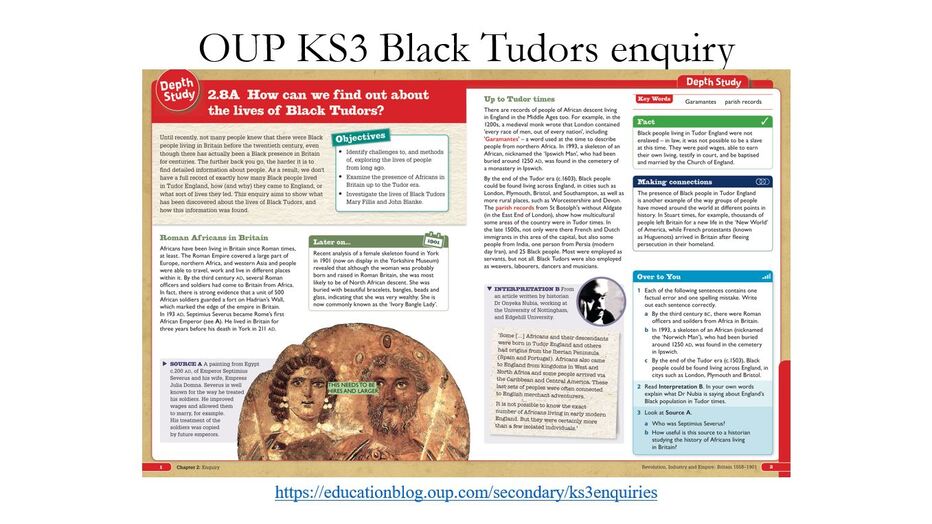 As in any curriculum change, there needs to be a long-term commitment and schools and teachers can play their part and we thank Miranda for sharing the following helpful suggestions to upskill and up-knowledge teaching of Black British History in the classroom:
With thanks to Miranda for her motivating and enlightening talk that made us all think about the endurance of Black British History and for sharing ways to teach and bring to life this significant part of history that can inform the present. By Jude Owens, PA to the Executive Team and Governance 20/7/2023 0 Comments SWIFT Character Education Professional Community | Building a Characterful CurriculumLyndsey Bolton of the Alumnis Multi Academy Trust led the final session of the SWIFT Character Education Professional Community looking at how to develop a co curriculum that explicitly develops character, enhanced by enrichment and developed by curriculum offers and opportunities for children as part of Character 'sought'. A class teacher and Character Education Lead across the Trust, Lyndsey has always been passionate about providing children with opportunities to build themselves as strong, courageous, resilient and creative individuals and uses the term “characterful” explicitly and clearly. She started her own character journey building on research work with the Jubilee Centre that provides a useful resource bank for teachers to take the tools back into school and provide creative and innovative ways to teach character through the curriculum. Character needs to be taught. Do not take it for granted that children will soak it up. Or leave it to chance. But provide environments and a culture where they can catch it and seek it. Think about how to message to children and connect it with the curriculum. Why? How? What does it do? Character is an essential part of Personal Development within the Ofsted Framework. Lyndsey reported on a recent Ofsted Outstanding judgement in one of the Trust schools. During Ofsted visits the children have “sung character” throughout the inspection in the way that they spoke, conducted themselves, and demonstrated behaviour for learning in action. Lyndsey is always keen to champion that schools do not work in isolation. But if something is going really well or is in a positive stage of development, to share it in their communities and to learn from one another. Hence the work of this Professional Community. Lyndsey has worked with children and staff to create characterful approaches rooted in the Trust vision of 'Inspiring Changemakers'. Careful consideration is given to the language used in all classrooms and across all the Trust schools that is intentional, explicit and supports each practitioner to weave in impactful opportunities to develop personally and holistically; putting virtues in action. Planned and intentional opportunities to link teaching character through discussion, events, stories in the classroom and assemblies help children to internalise, process and reflect on how to recognise it and then live it. For example, how did they feel when they spoke out? How can they learn for next time? Consider what does it look like across all the year groups and think about the progression. The Alumnis approach is developed from Early Years and throughout the children's educational career. Consider the challenges, but be creative and courageous in shaping your opportunities and enhance what is happening in curriculum time. Map out where children can have multiple opportunities to develop their character throughout the academic year. Confidence is a huge issue and can be difficult for some children. But ultimately, character education and developing a characterful culture within our schools for adults and children can guide them to see the opportunities as positive as they flourish as human beings. As part of the session, there was discussion about the work of the participants and it was agreed that the legacy of Covid is still being felt in changes in character across schools with work to be done.
For instance, Nick Banwell shared the “11 by 11” work of ESW Multi Academy Trust in South Devon in creating opportunities for character development at primary by the time they reach age 11 and for secondary, by the time they reach Year 11. Opportunities are created across key topics, including enrichment, community, careers, forest school, environment, culture, arts, leadership, and mental wellbeing. All the schools are encouraged to connect and learn from each other and to build on their experiences. Given limited funds and pressured curriculum time, ESW is developing a link with the local Rotary Clubs who go into the schools and work alongside the children and provide various support. We thank Lyndsey for leading this session and adding an encouraging and enabling clarity about Character Education that can be bespoke for schools to make their own energy and to feel like they are part of a bigger picture of driving forward school improvement with character development as the foundation. Listening to these sessions always gives me hope. Report by Jude Owens, PA to the SWIFT Executive Team |
SWIFT News
|
SPONSORED BY
Join us, be a part of our SWIFT community |
© COPYRIGHT 2022 SOUTH WEST INSTITUTE FOR TEACHING SWIFT. ALL RIGHTS RESERVED | Website by brightblueC
VIEW OUR PRIVACY NOTICES | VIEW OUR COURSE T&CS
VIEW OUR PRIVACY NOTICES | VIEW OUR COURSE T&CS























































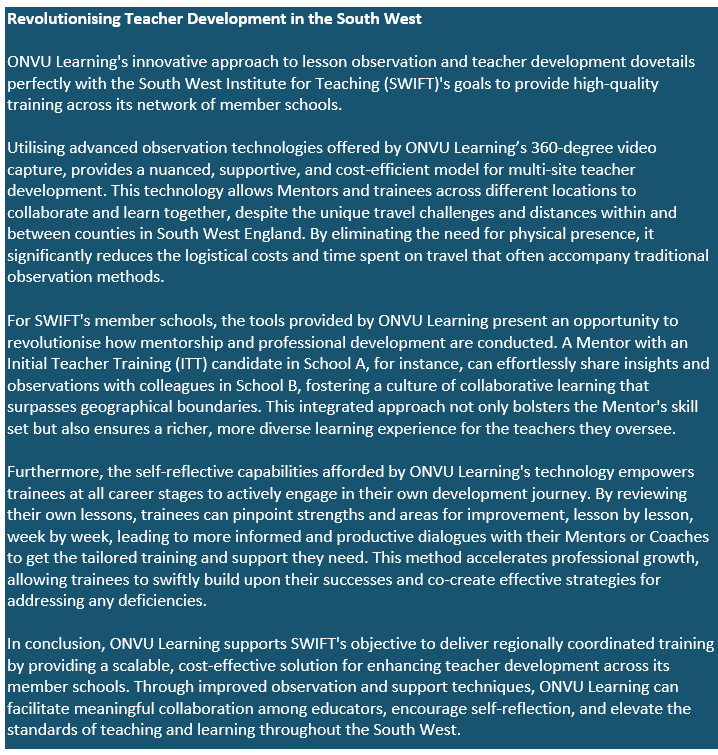




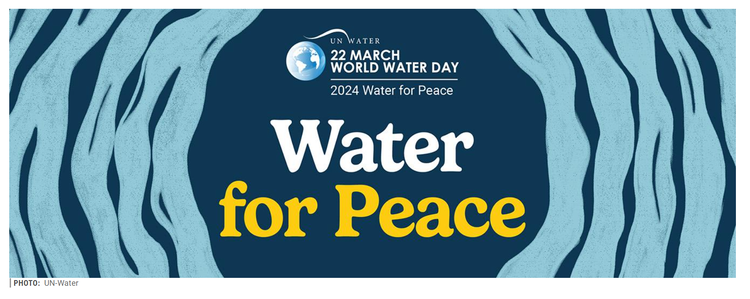
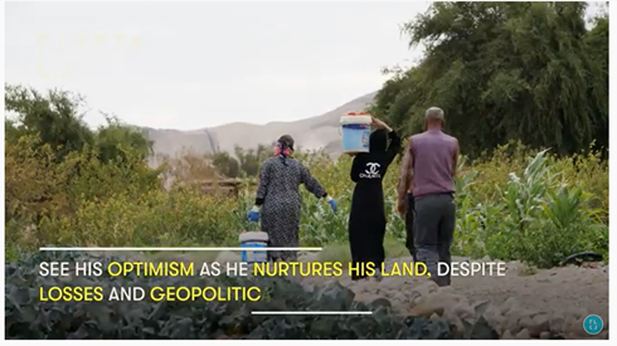

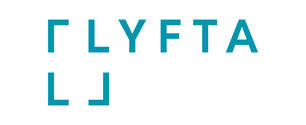

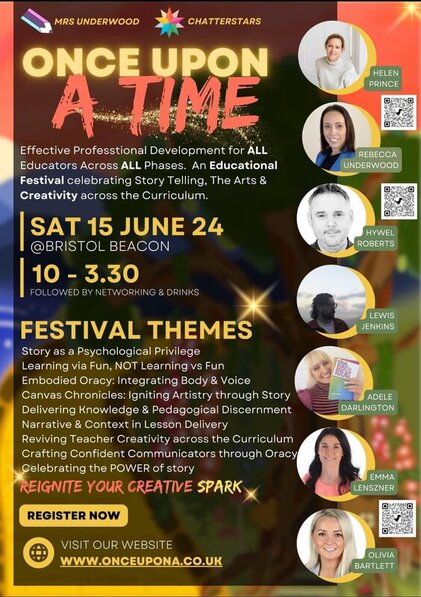
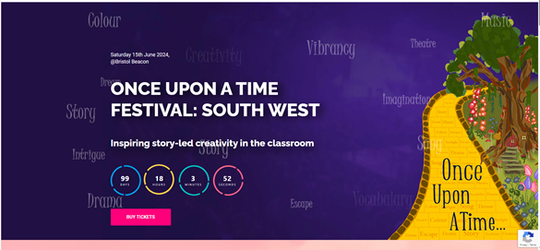


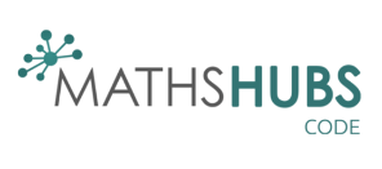


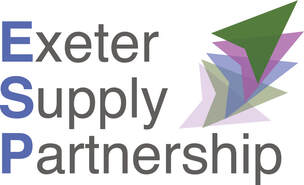
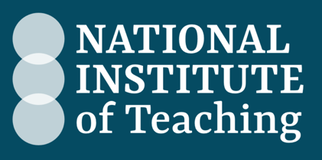
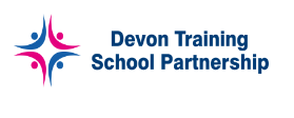
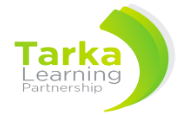
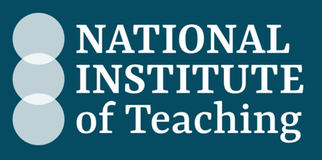



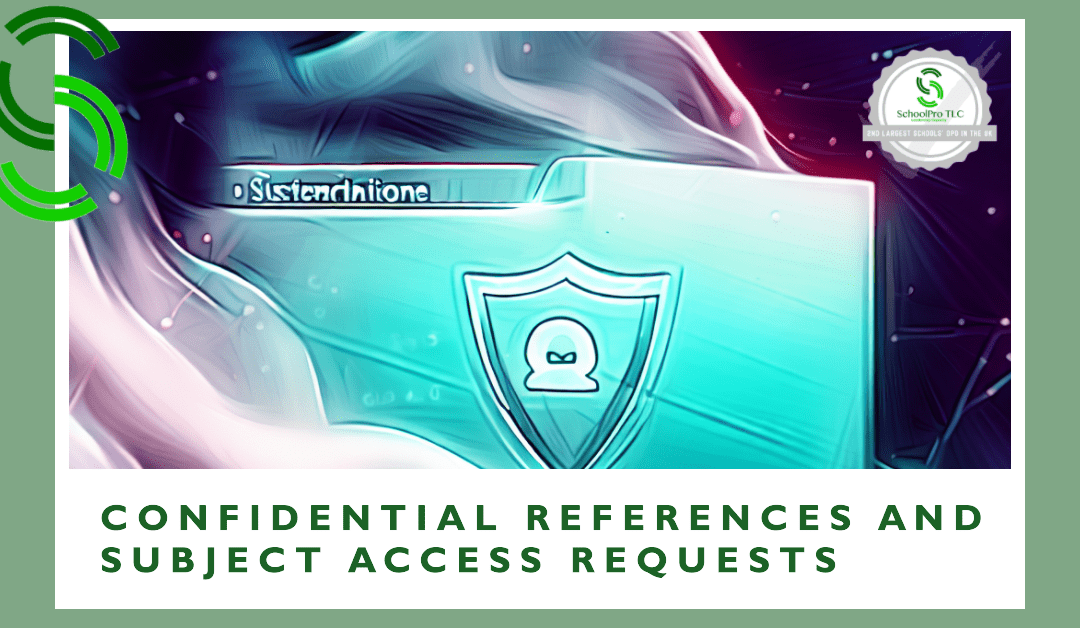


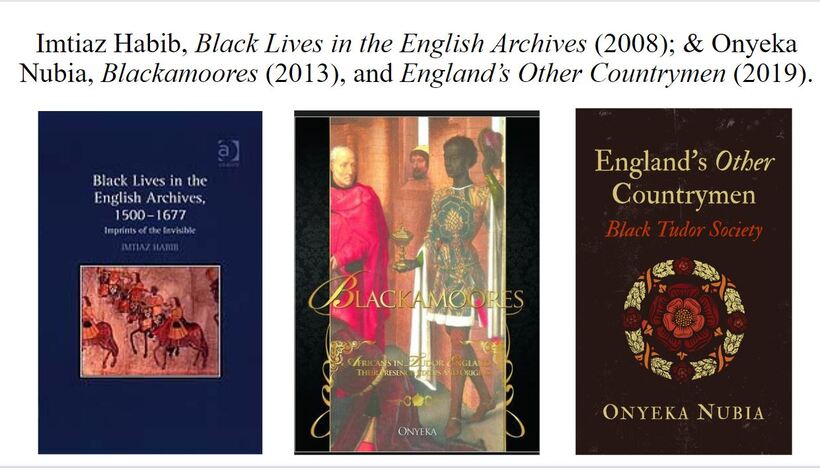
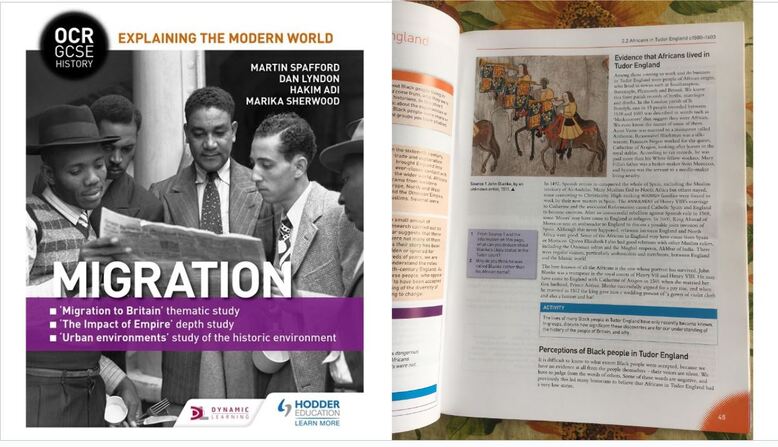
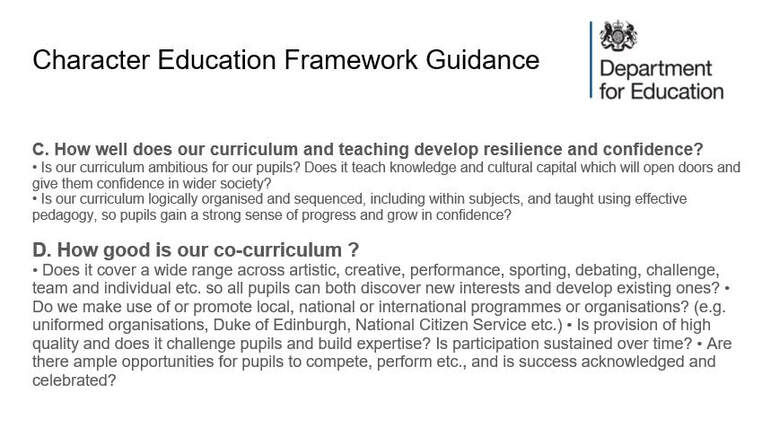
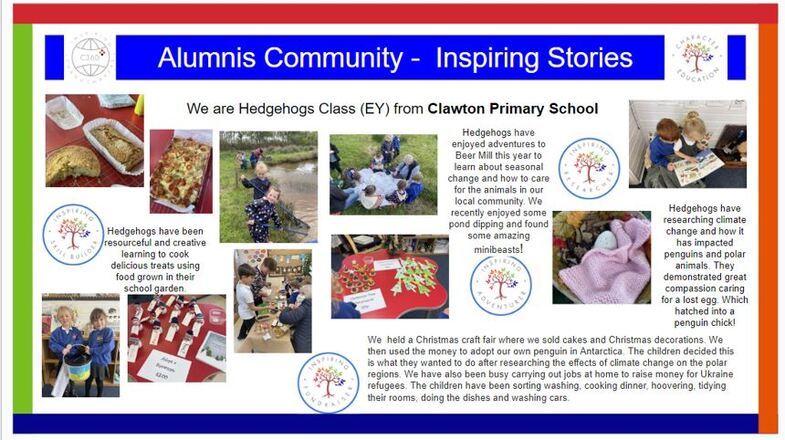
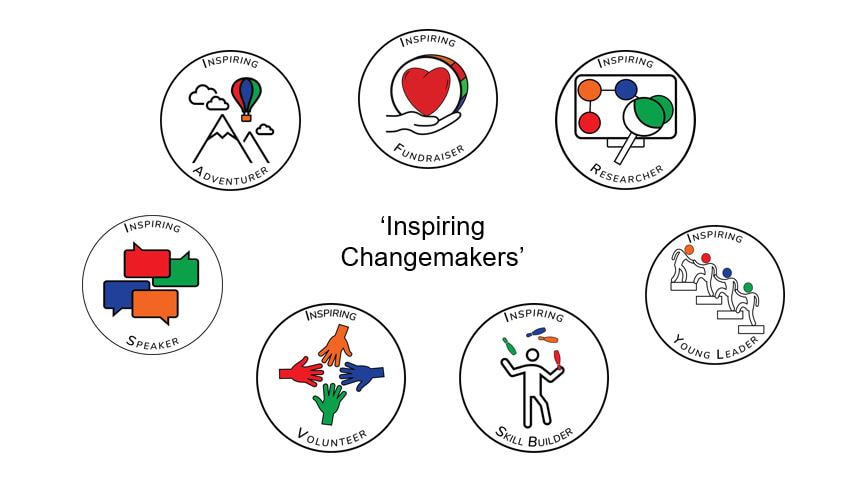

 RSS Feed
RSS Feed





